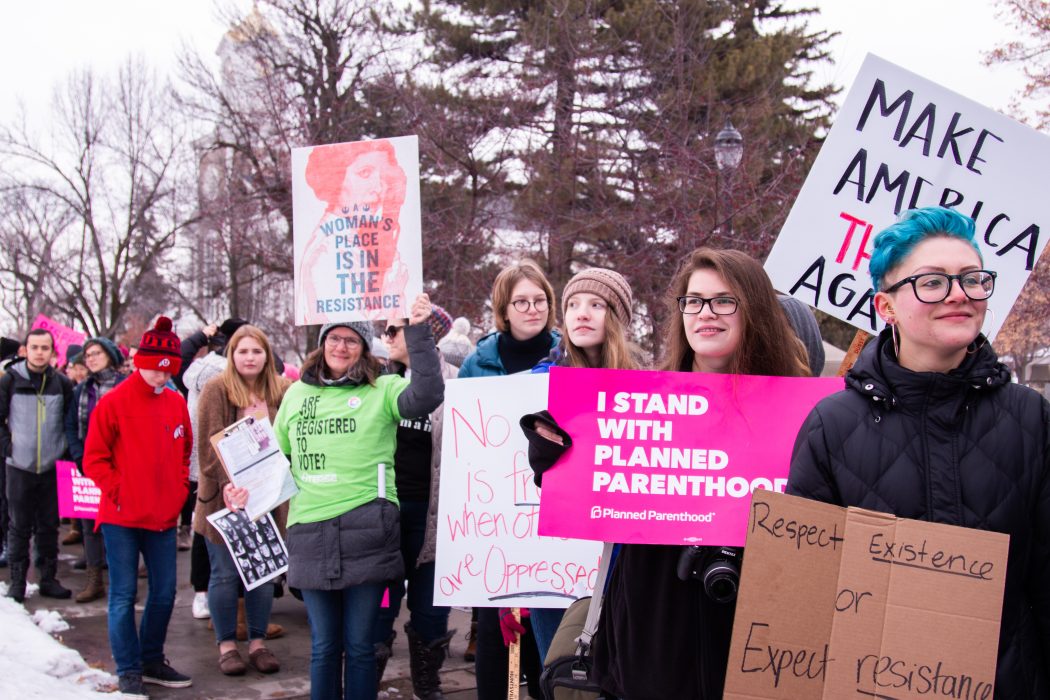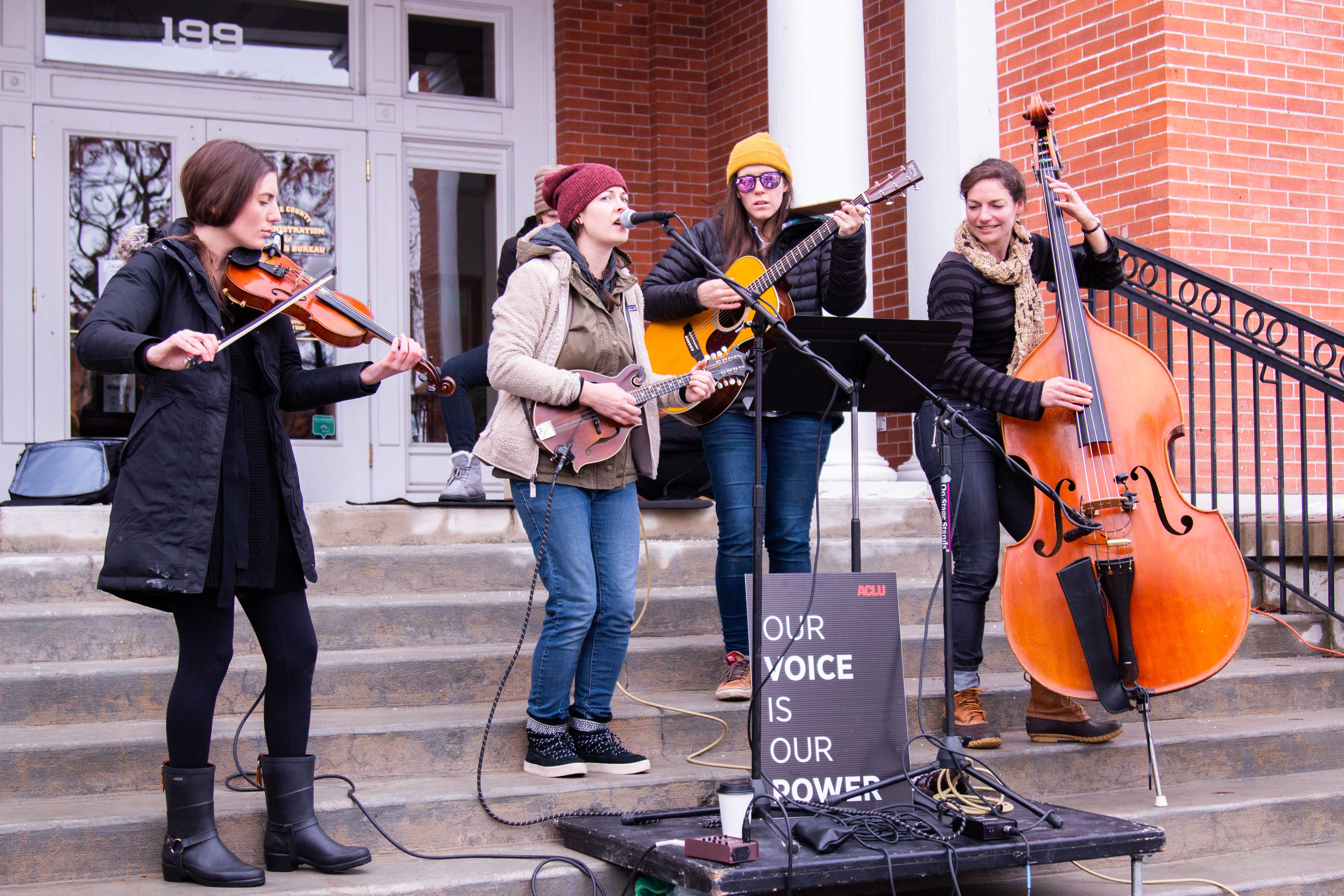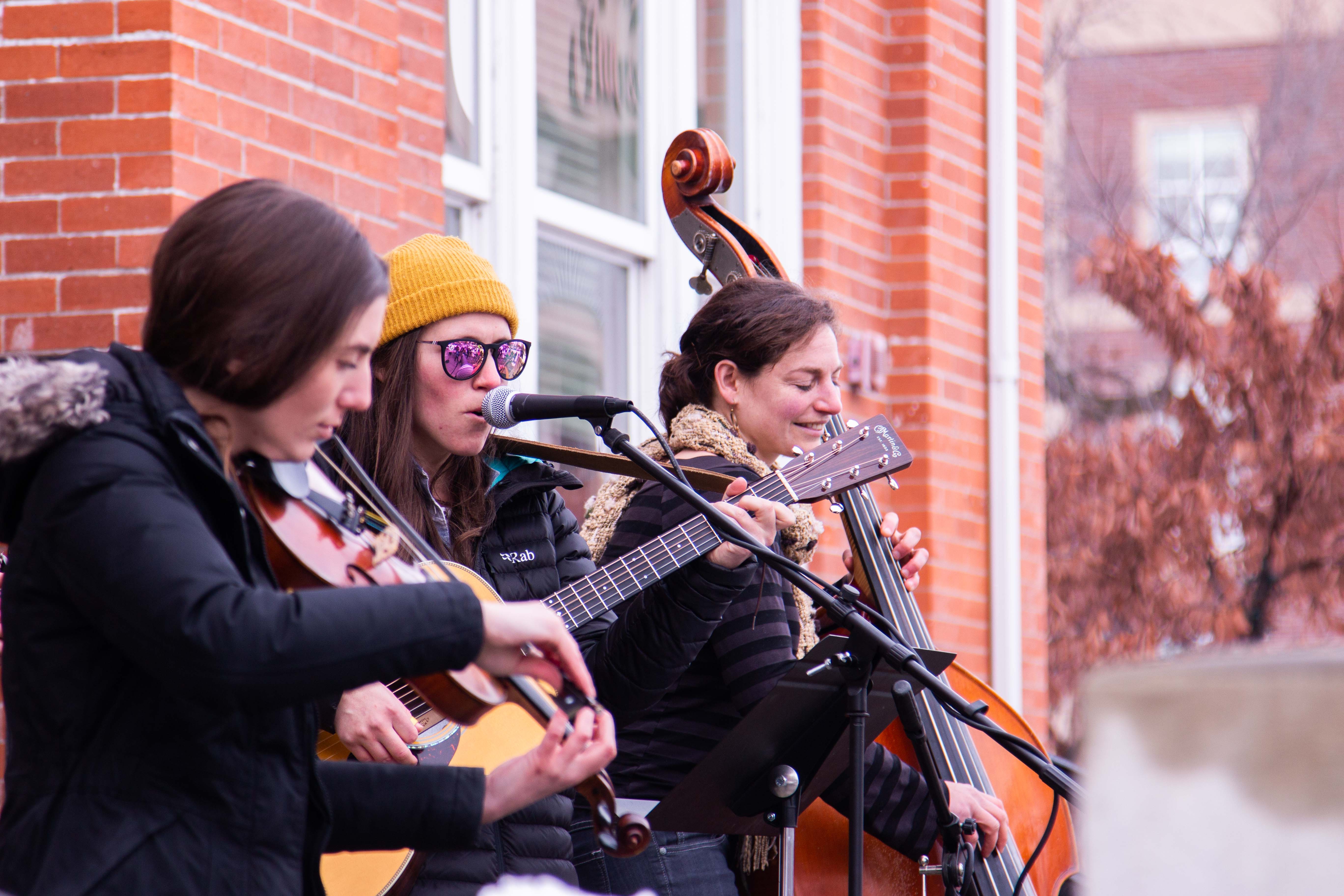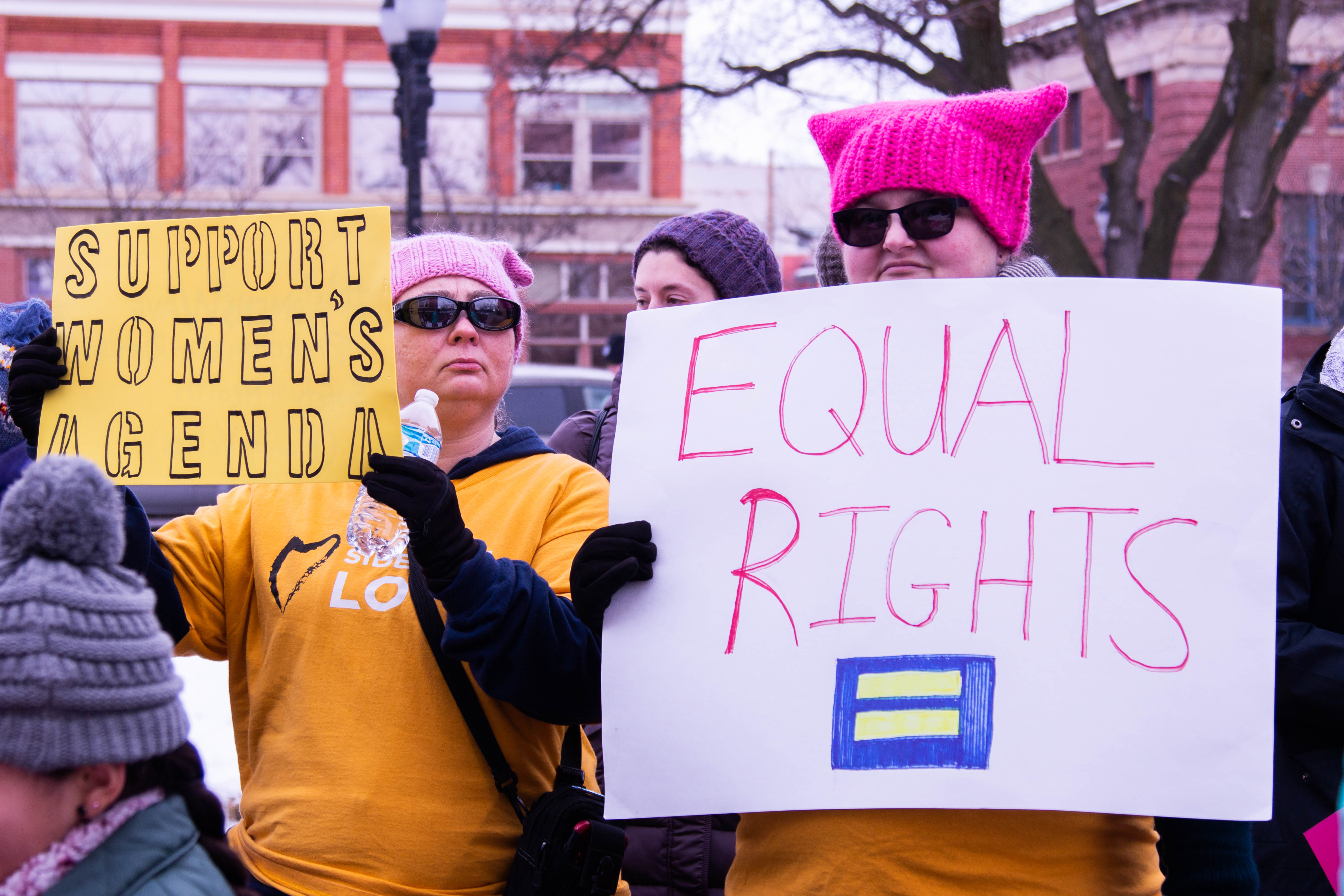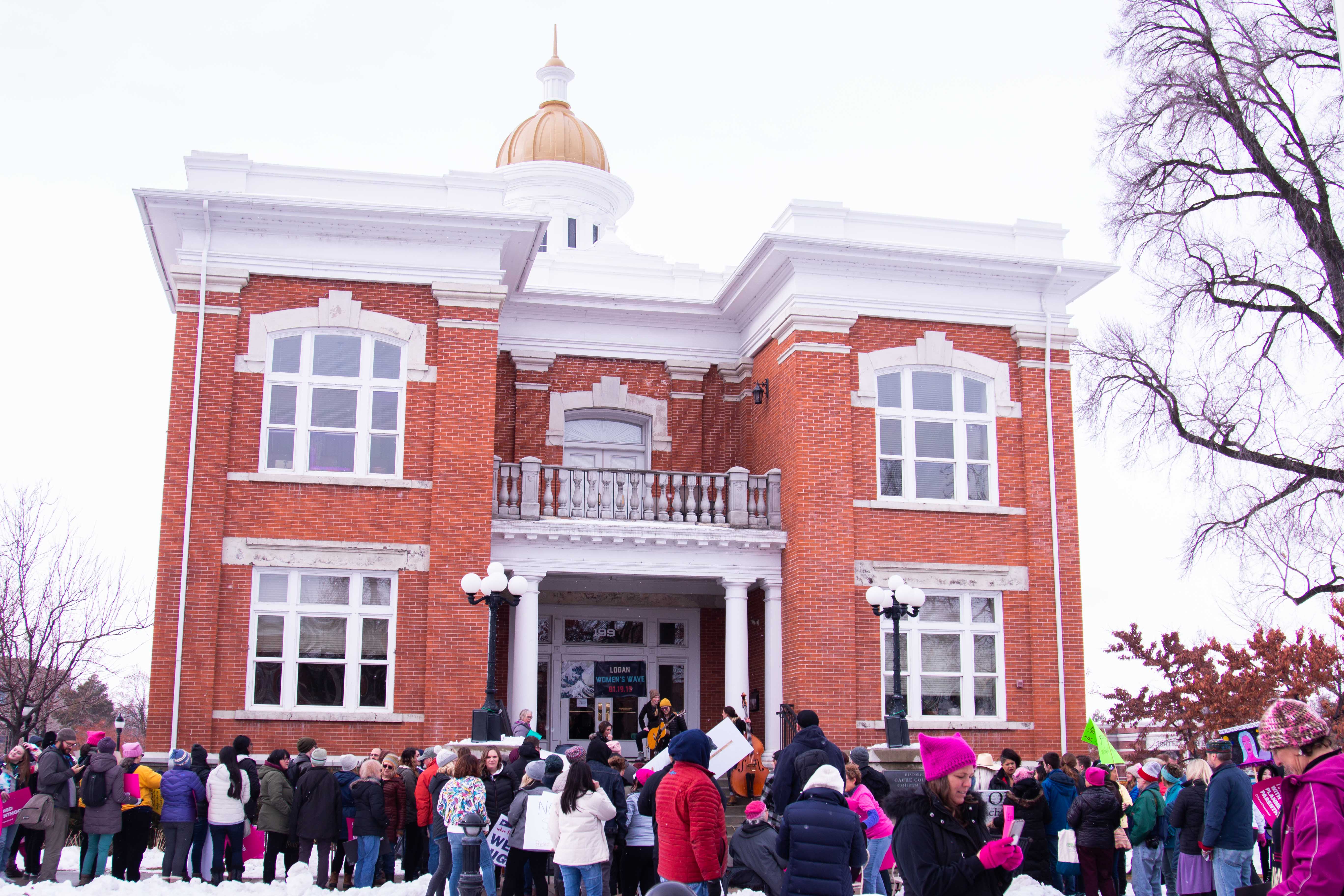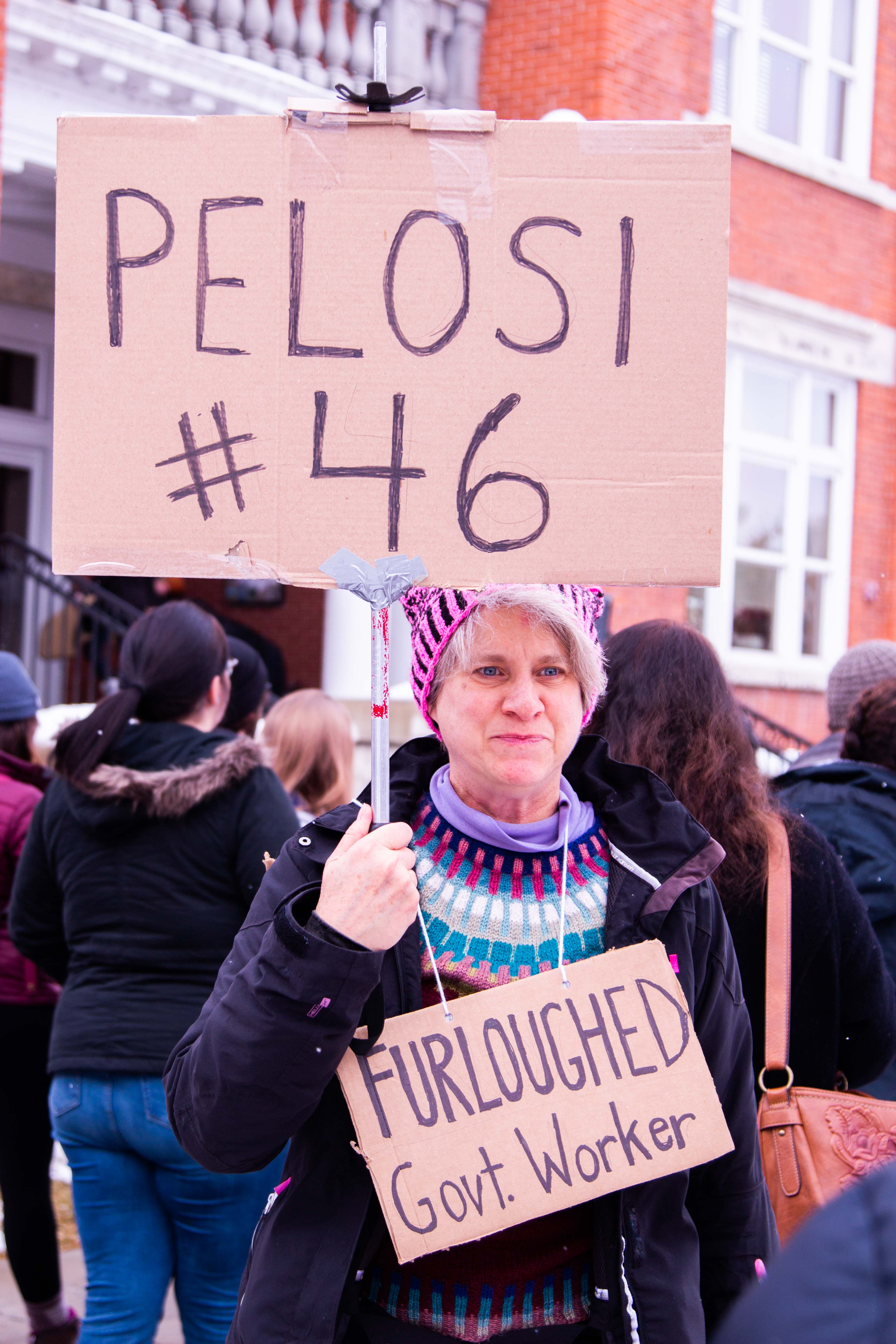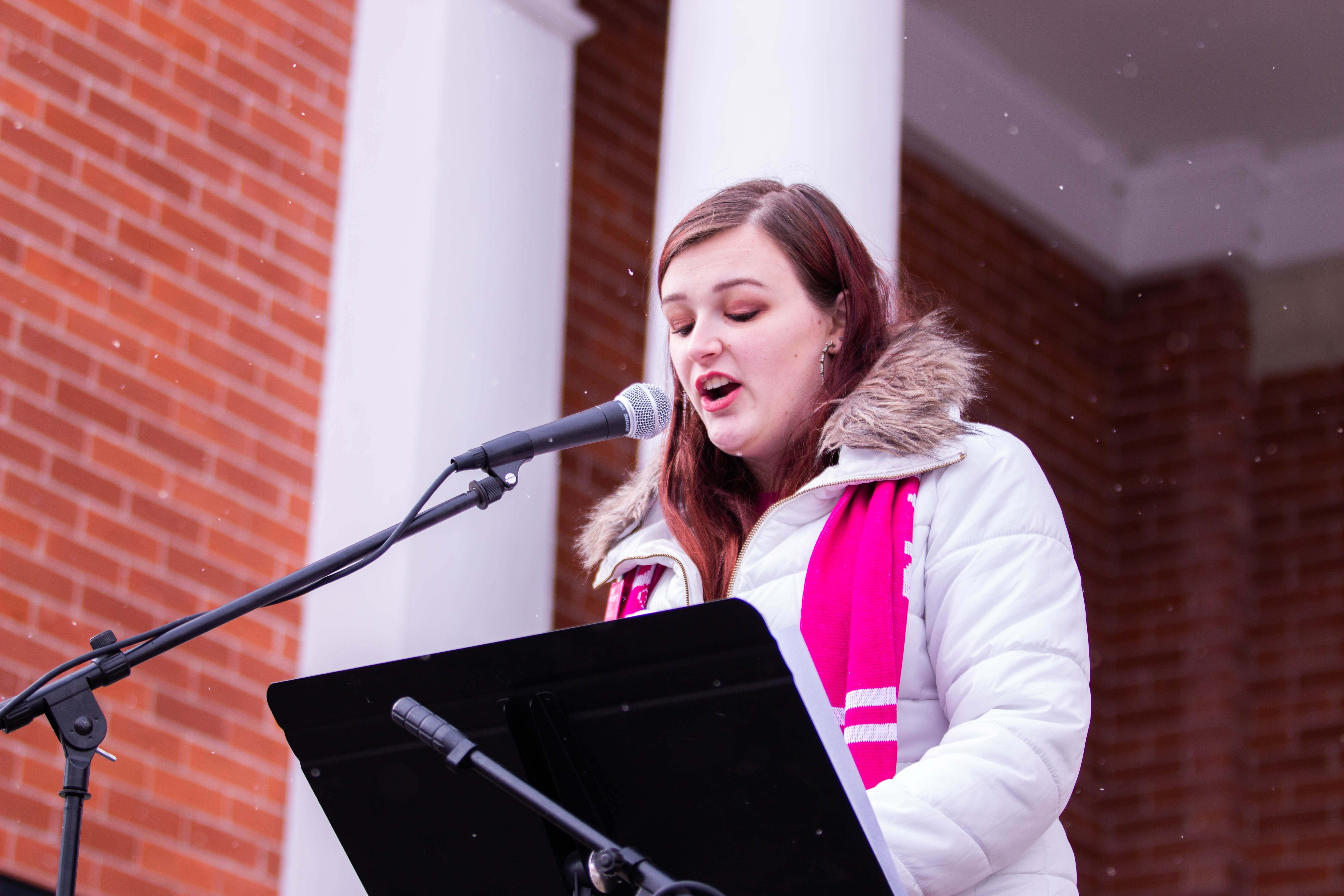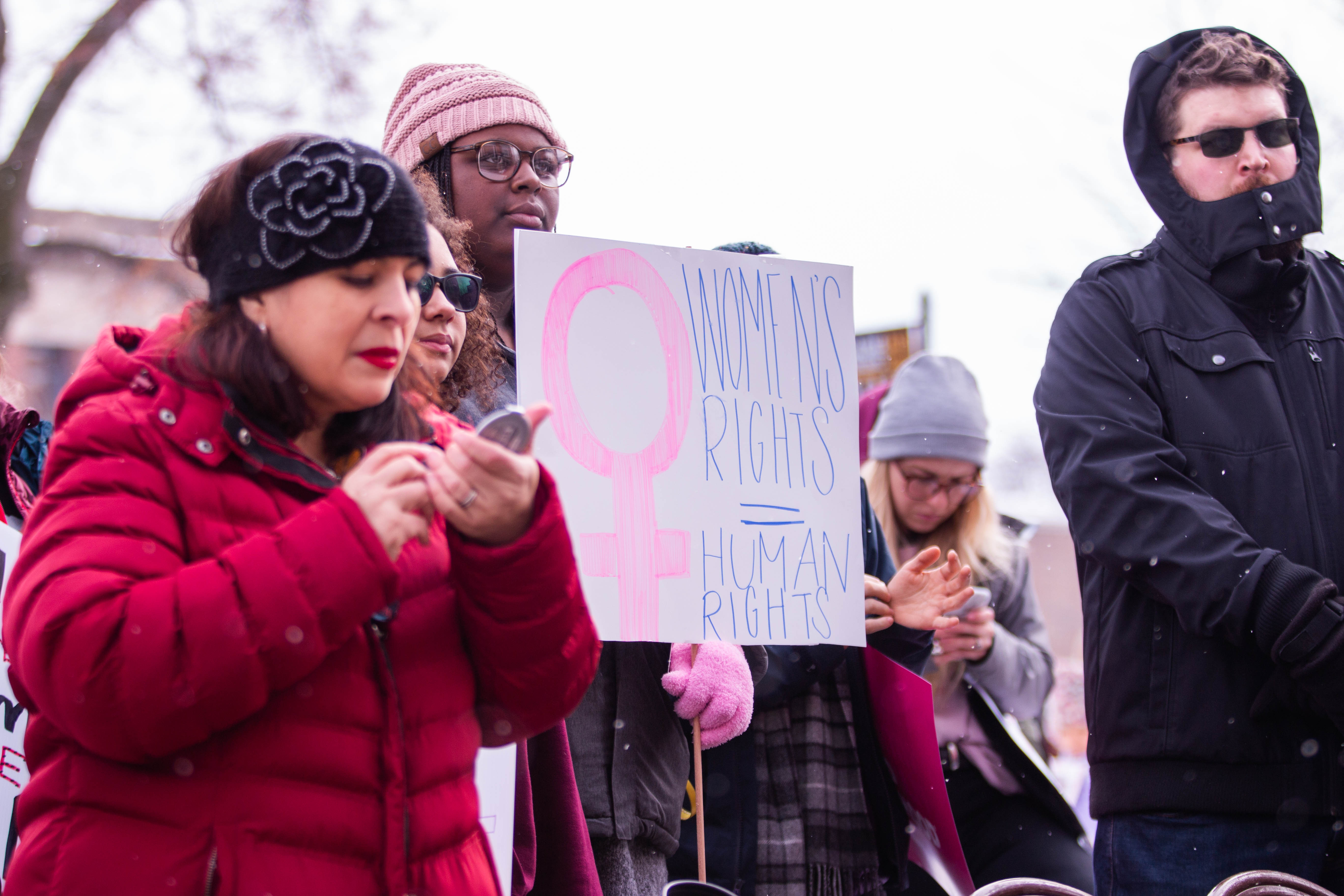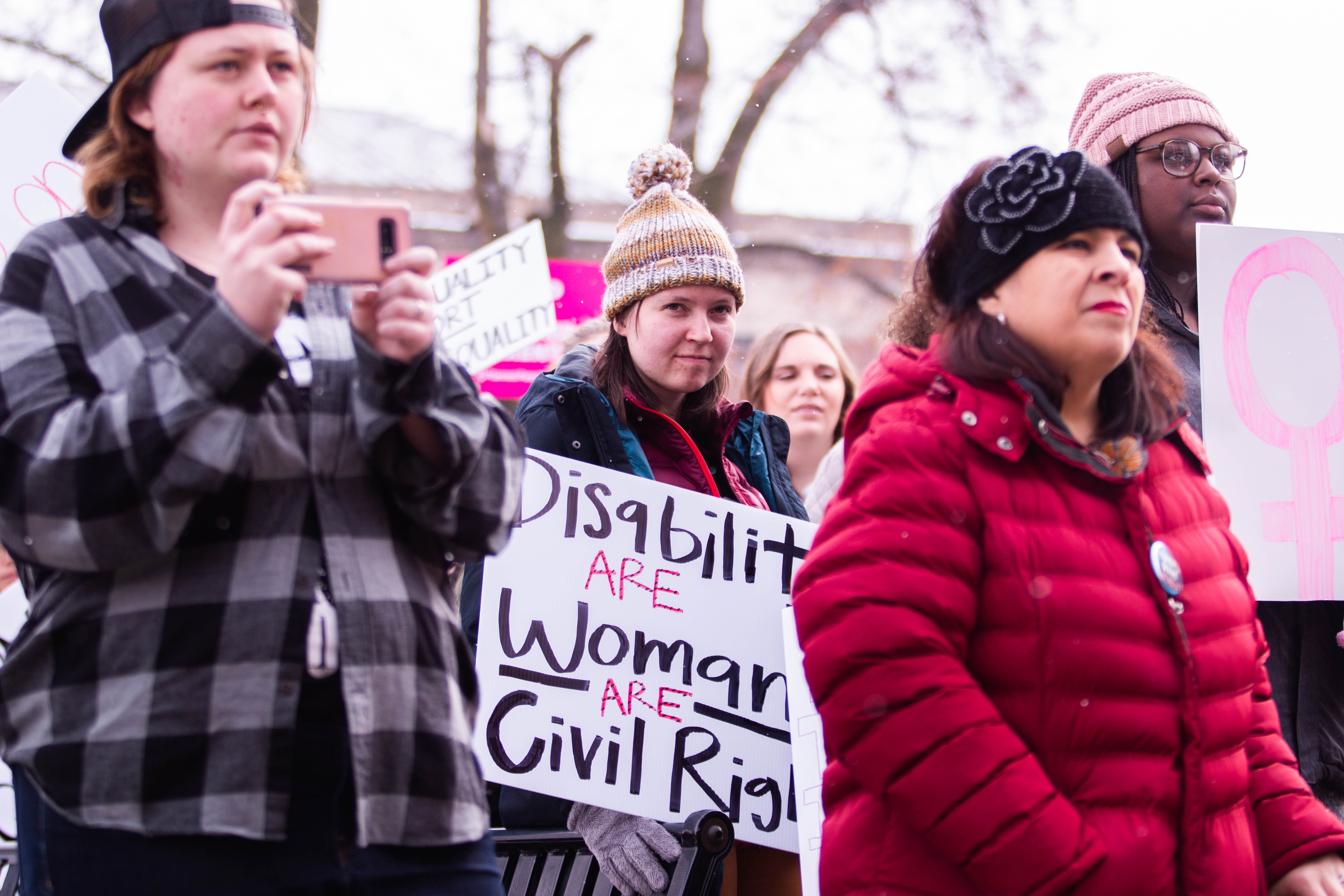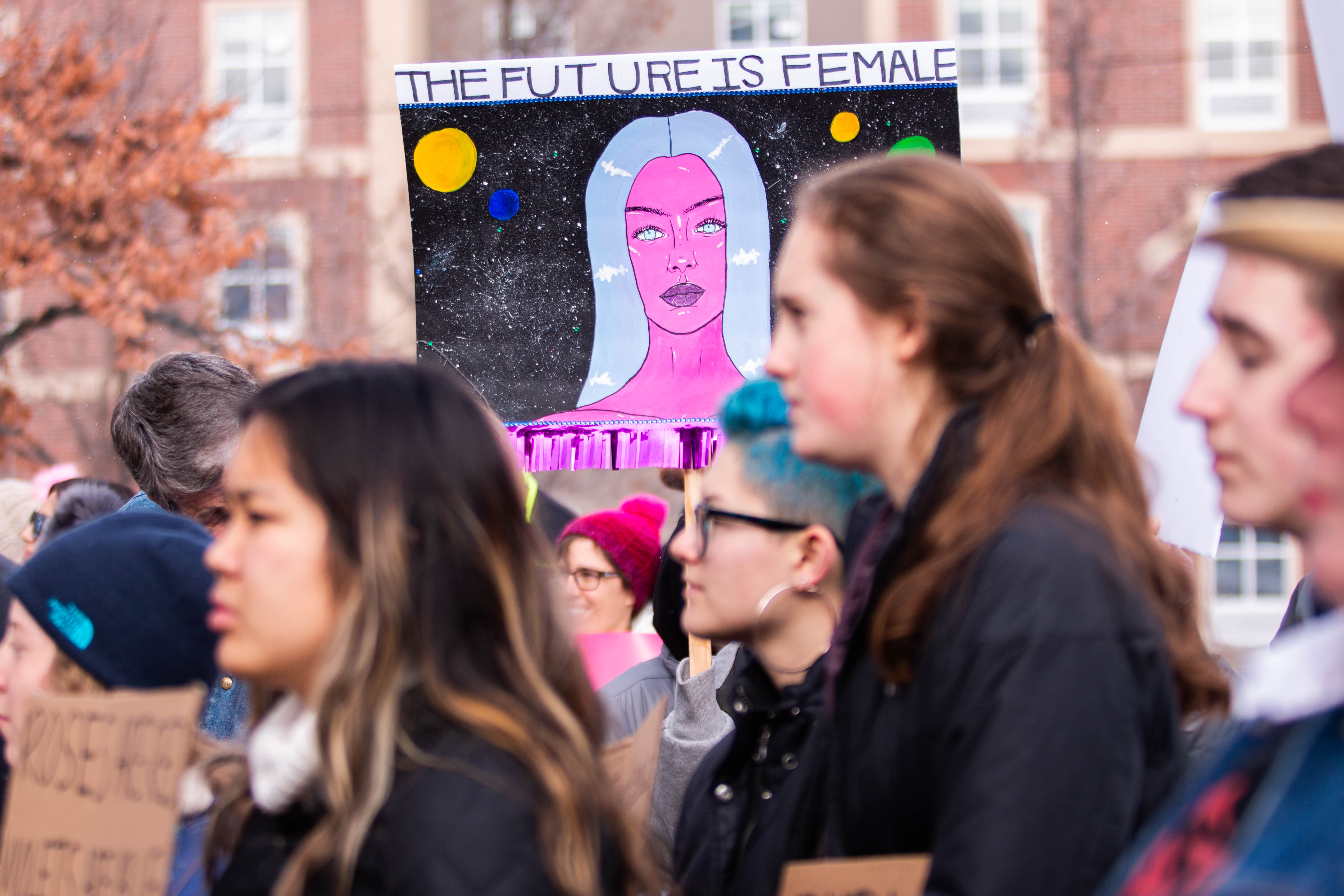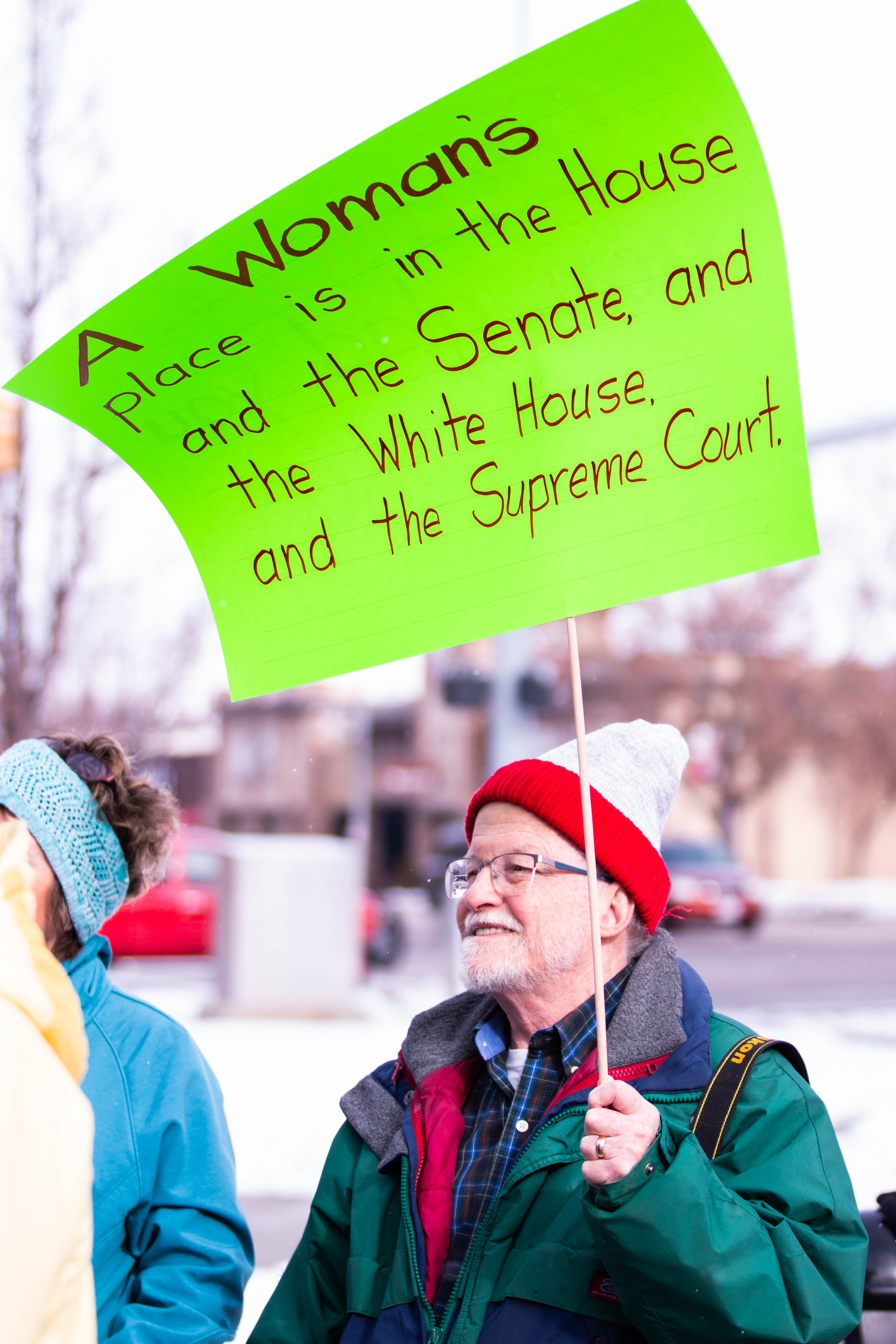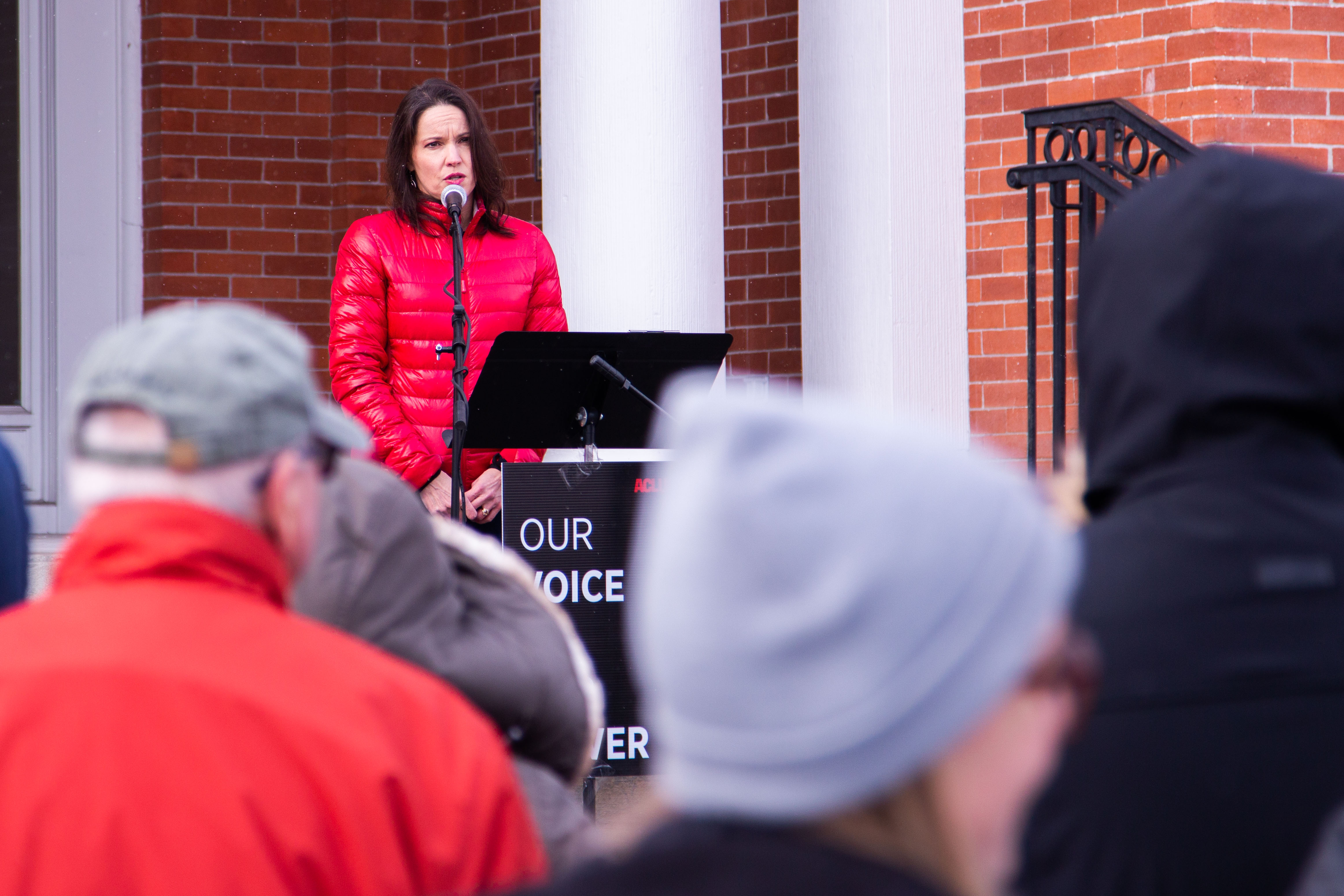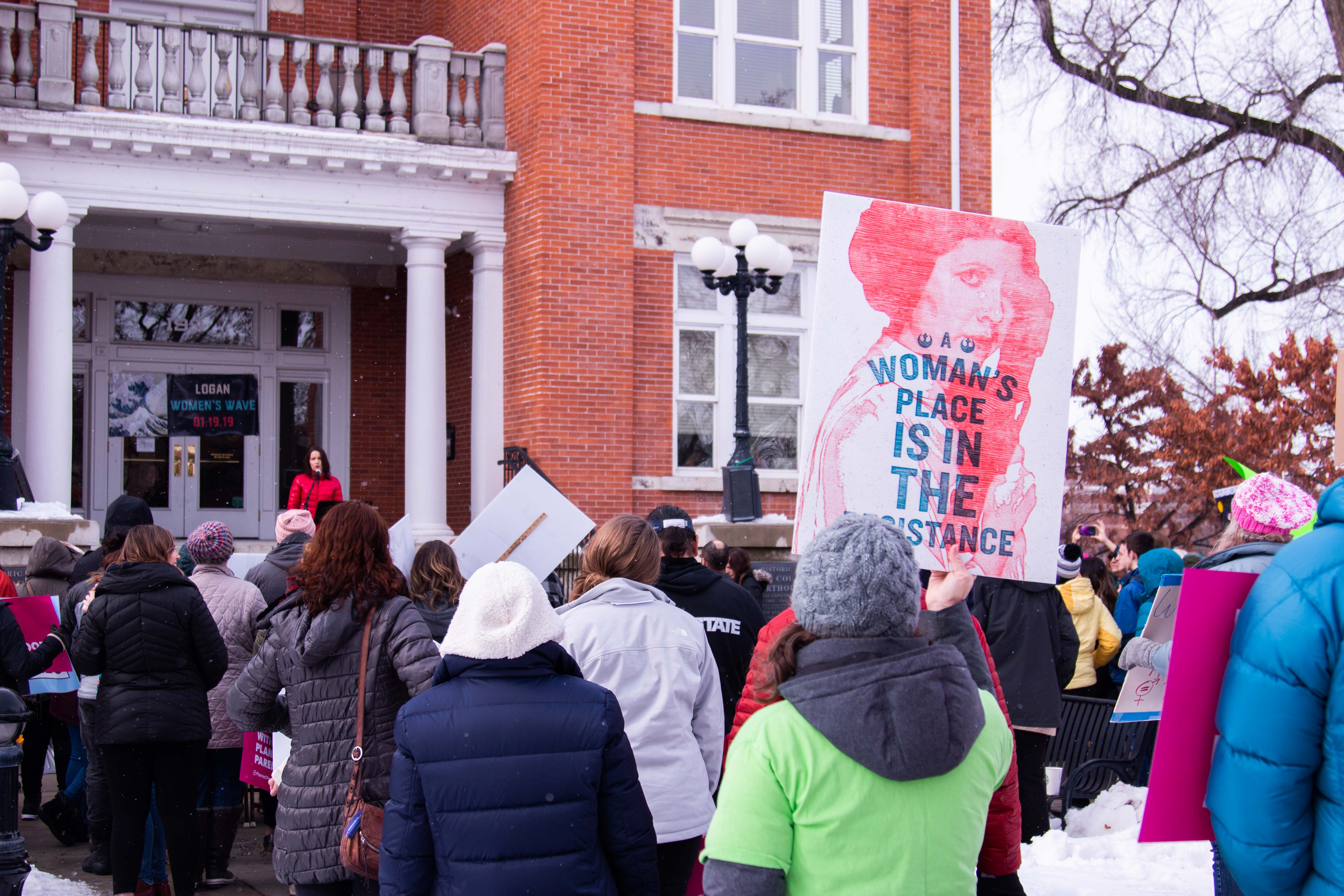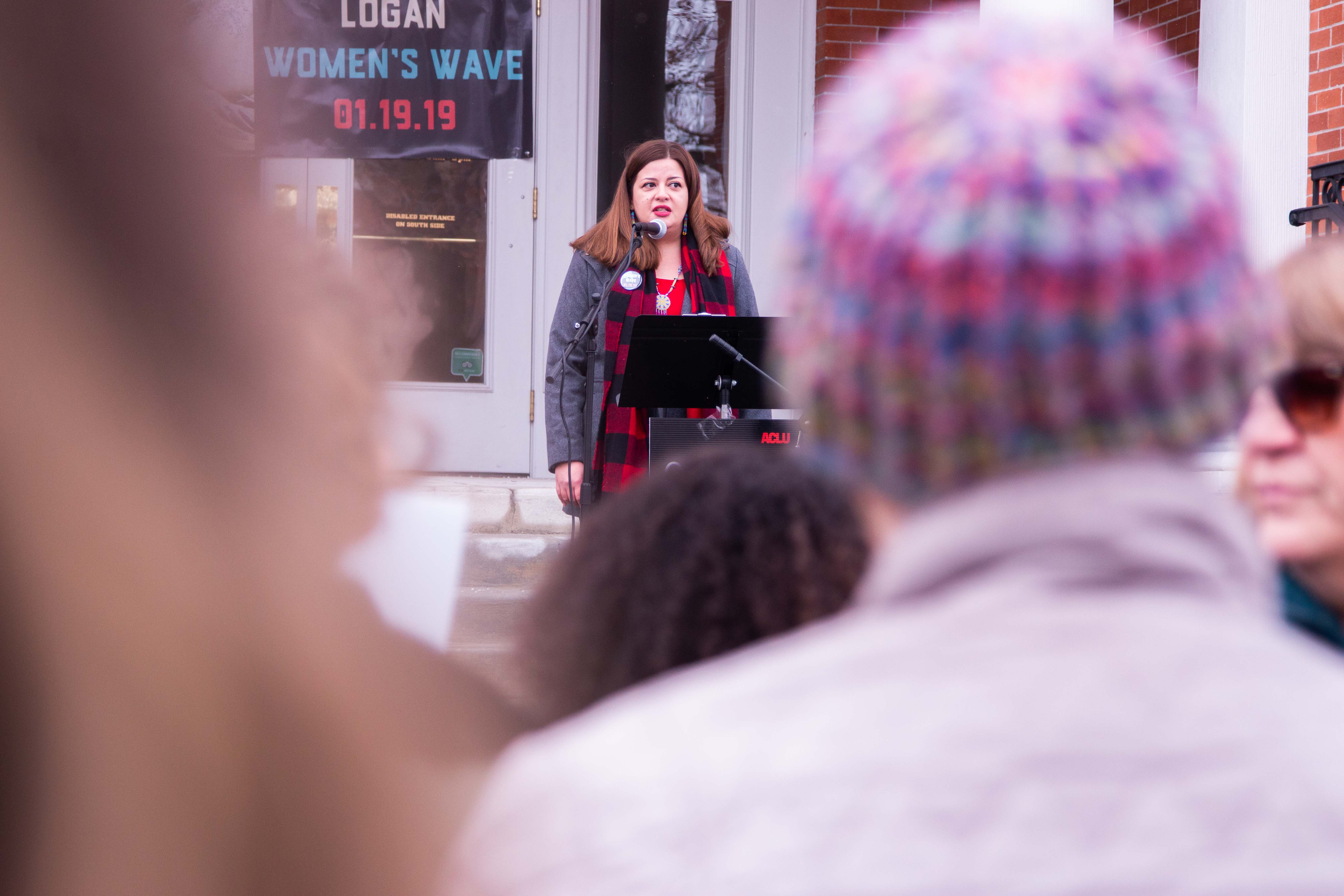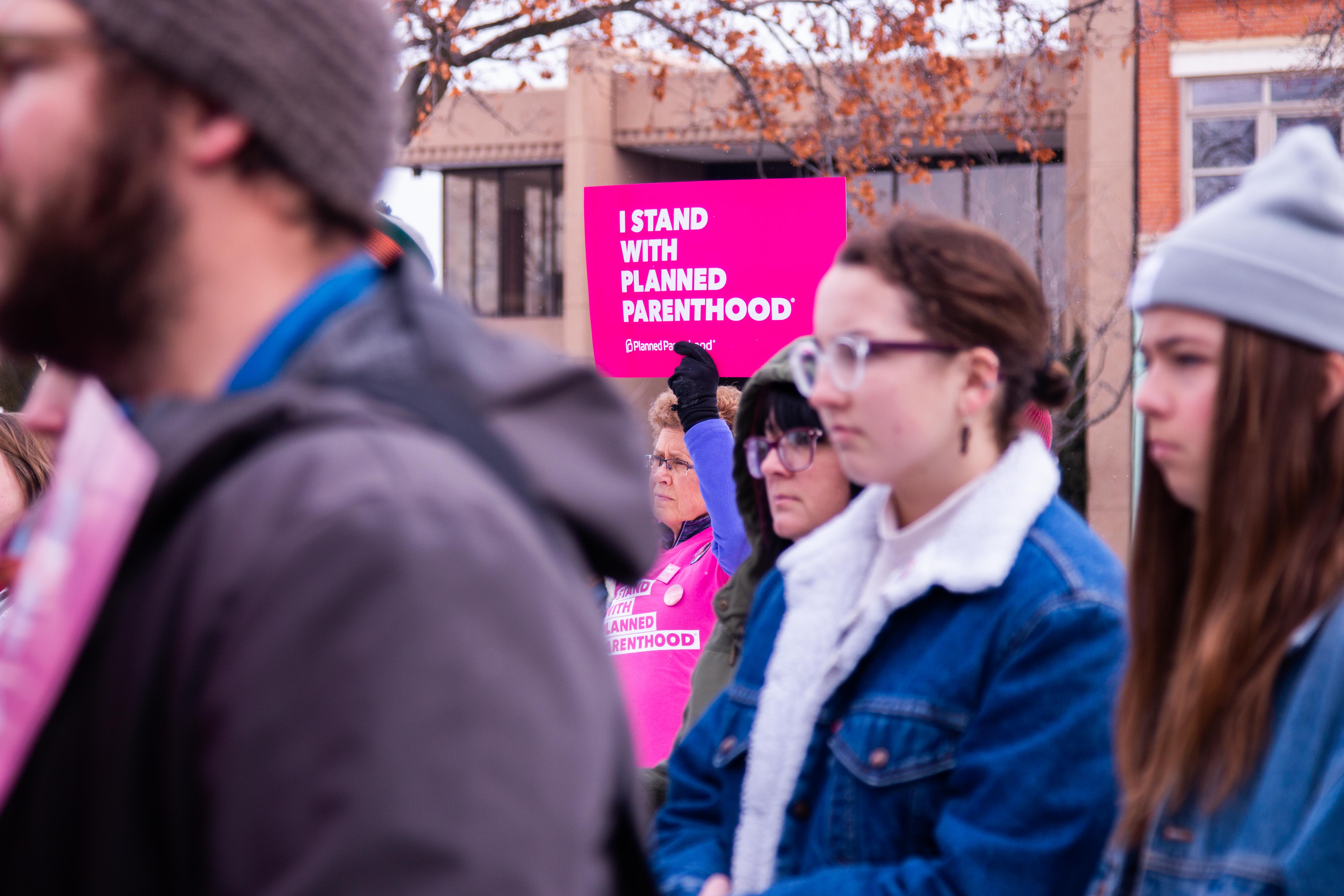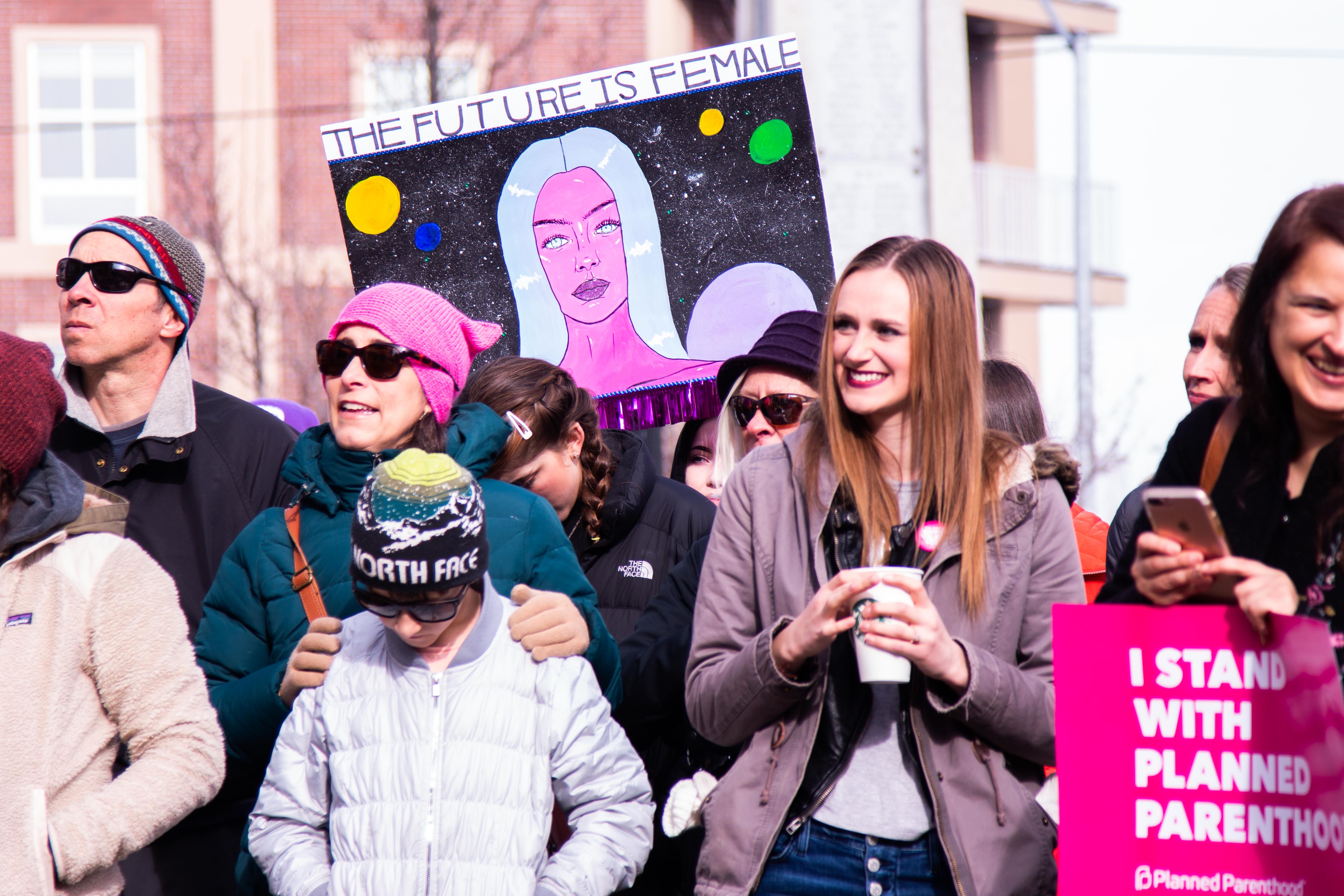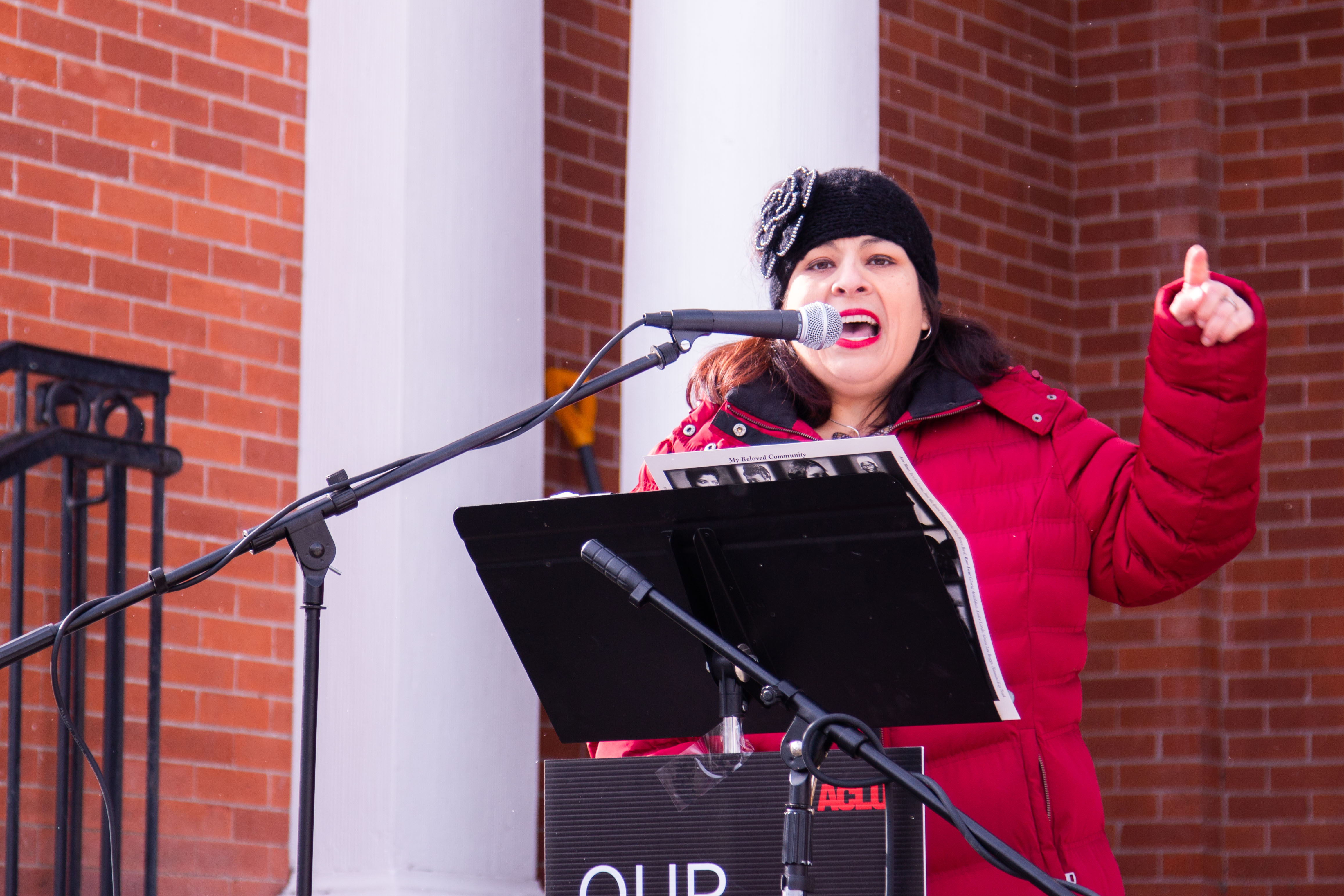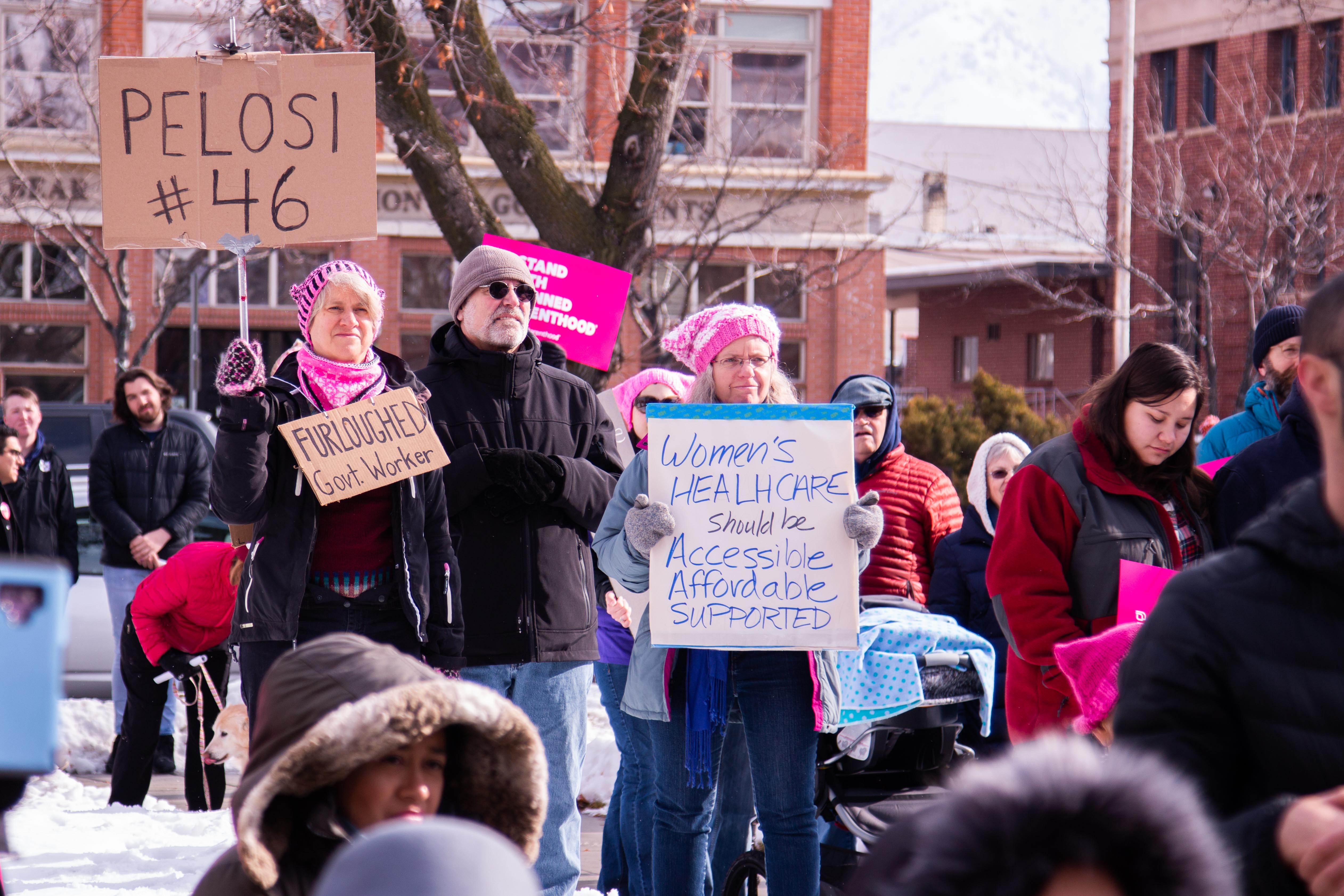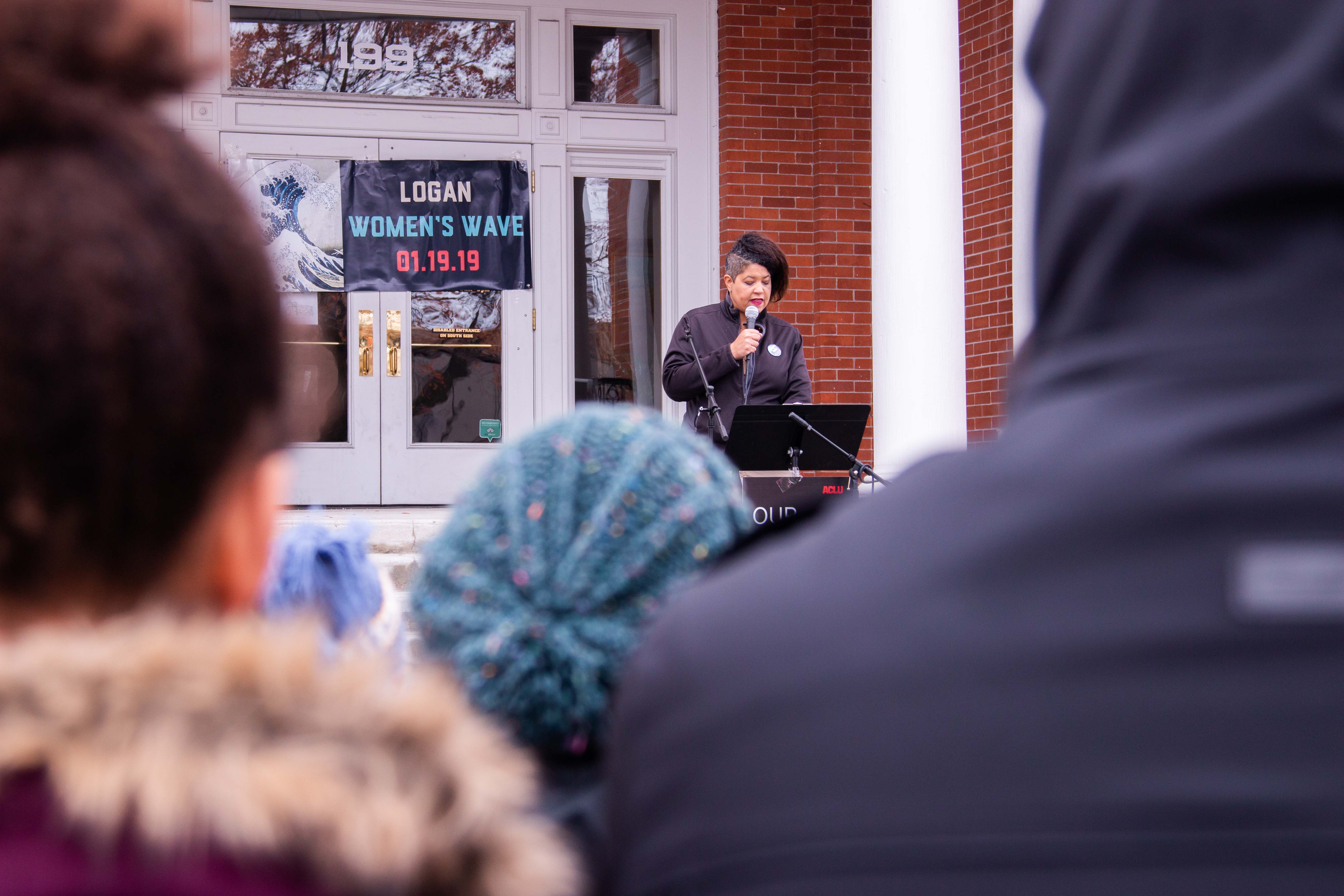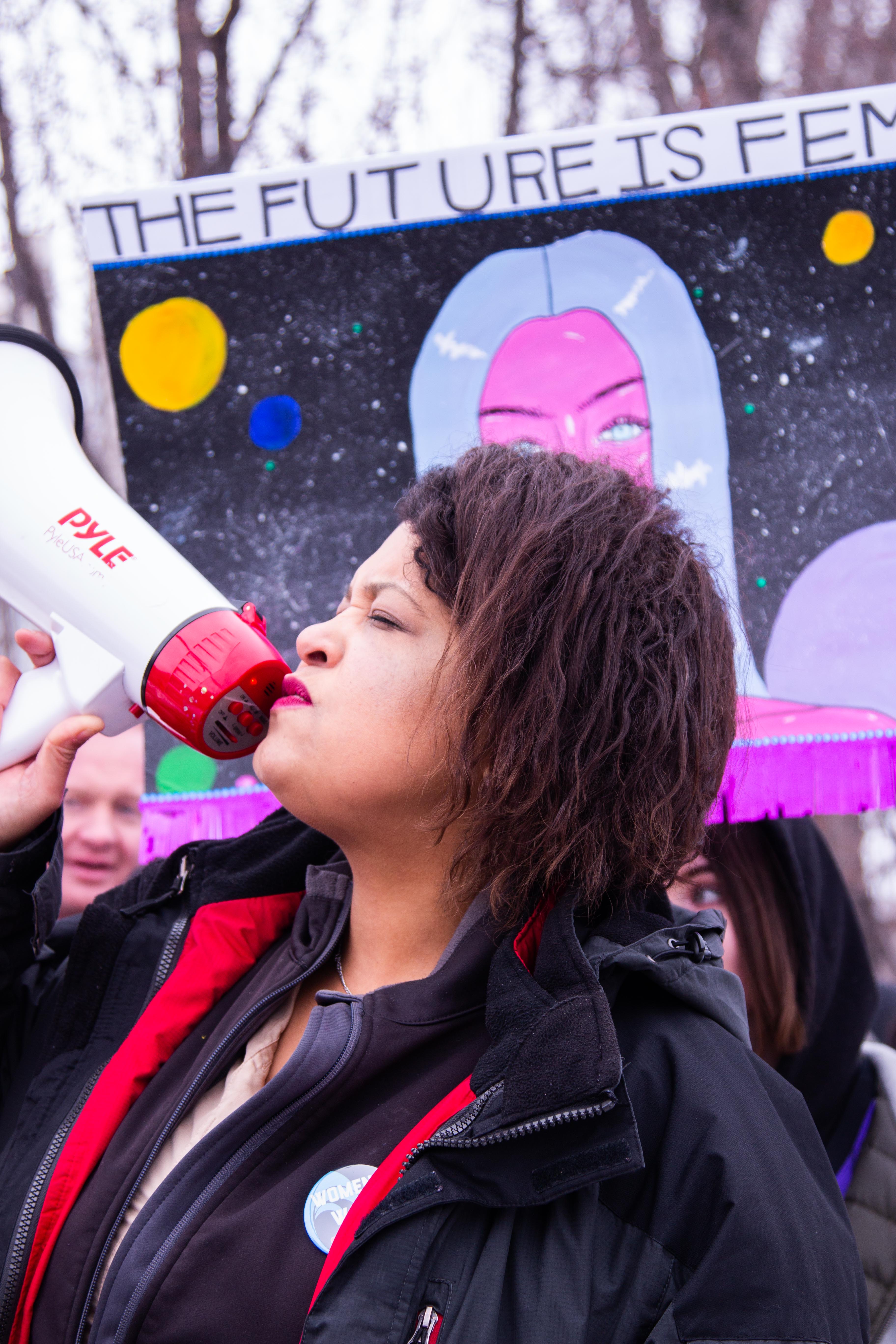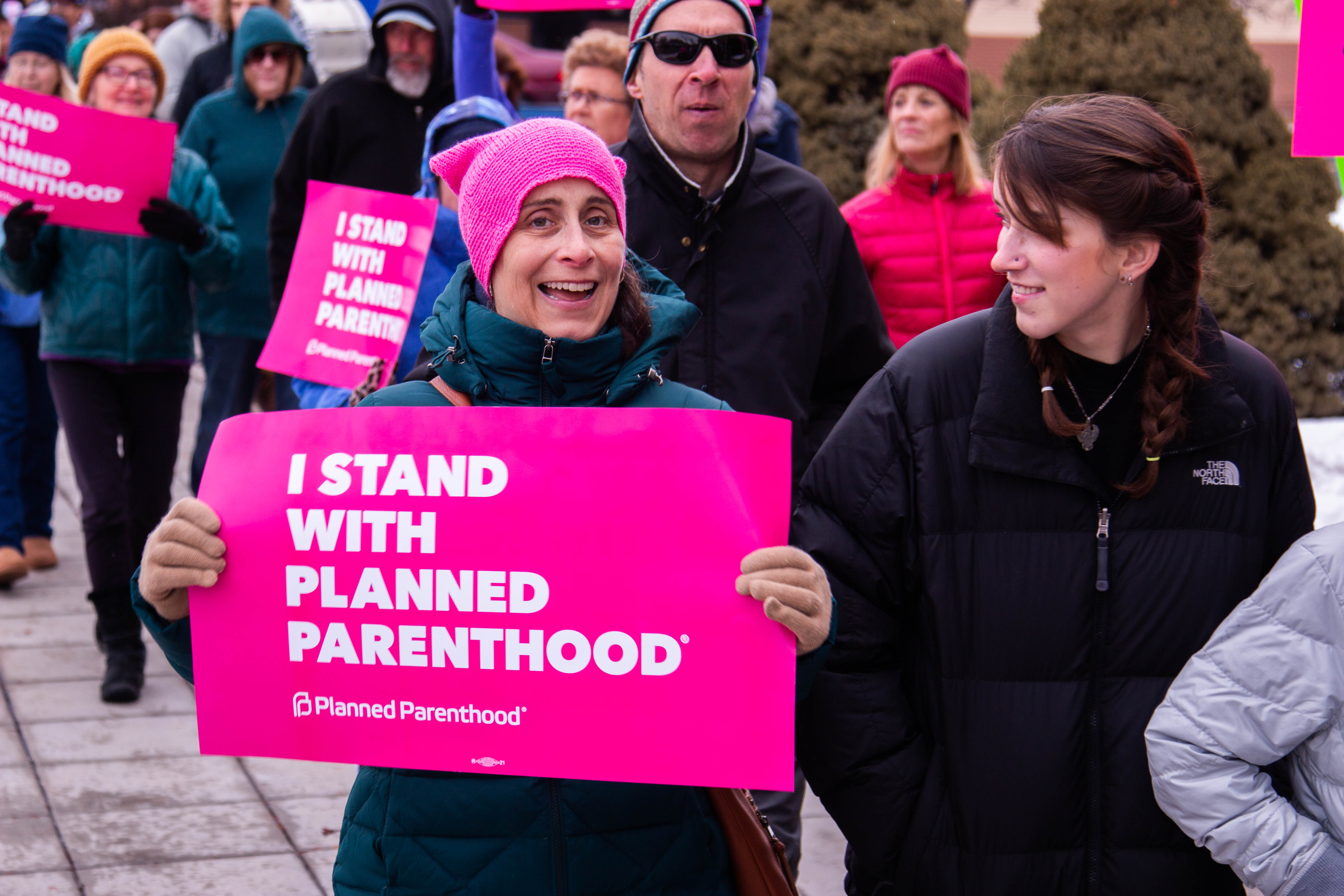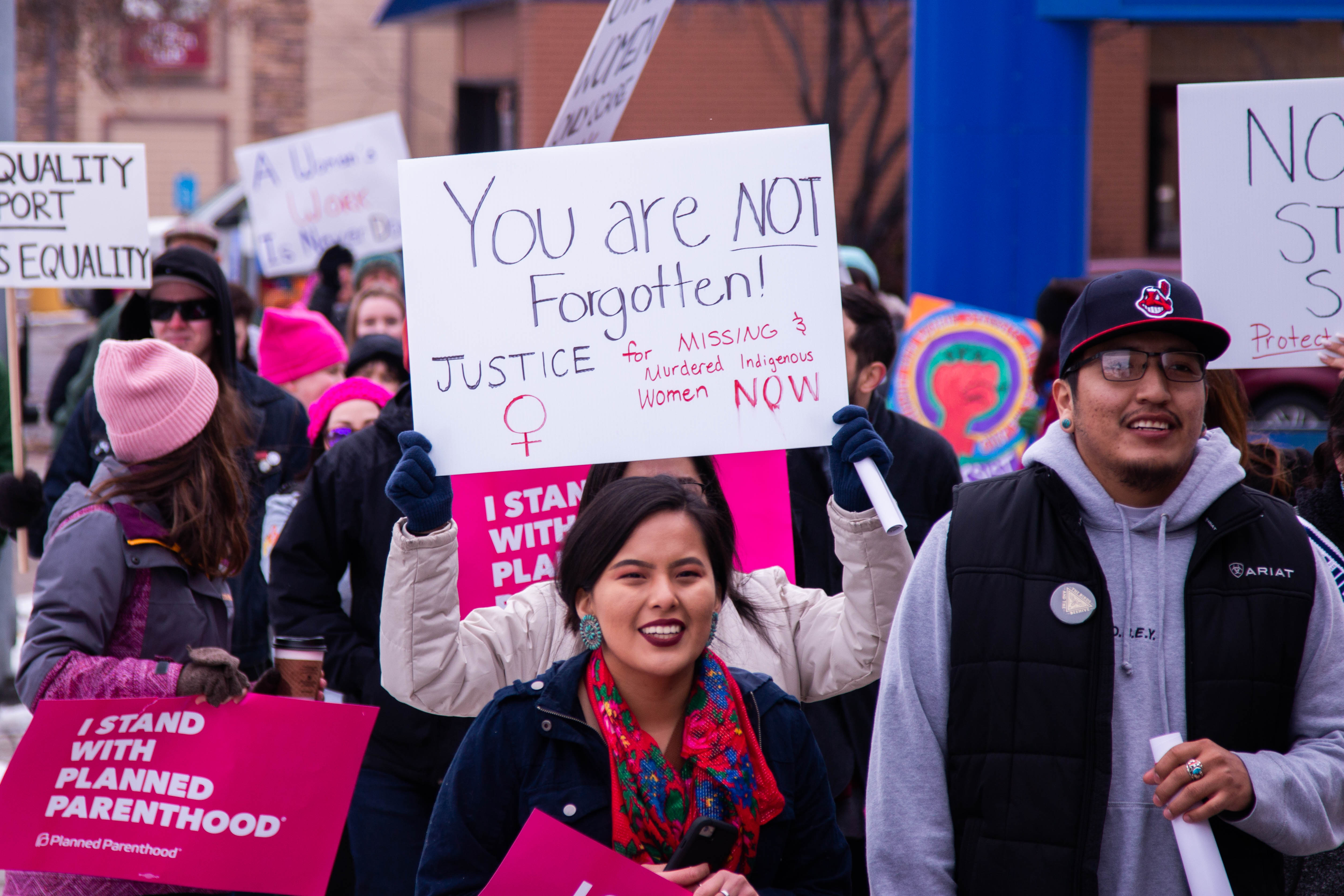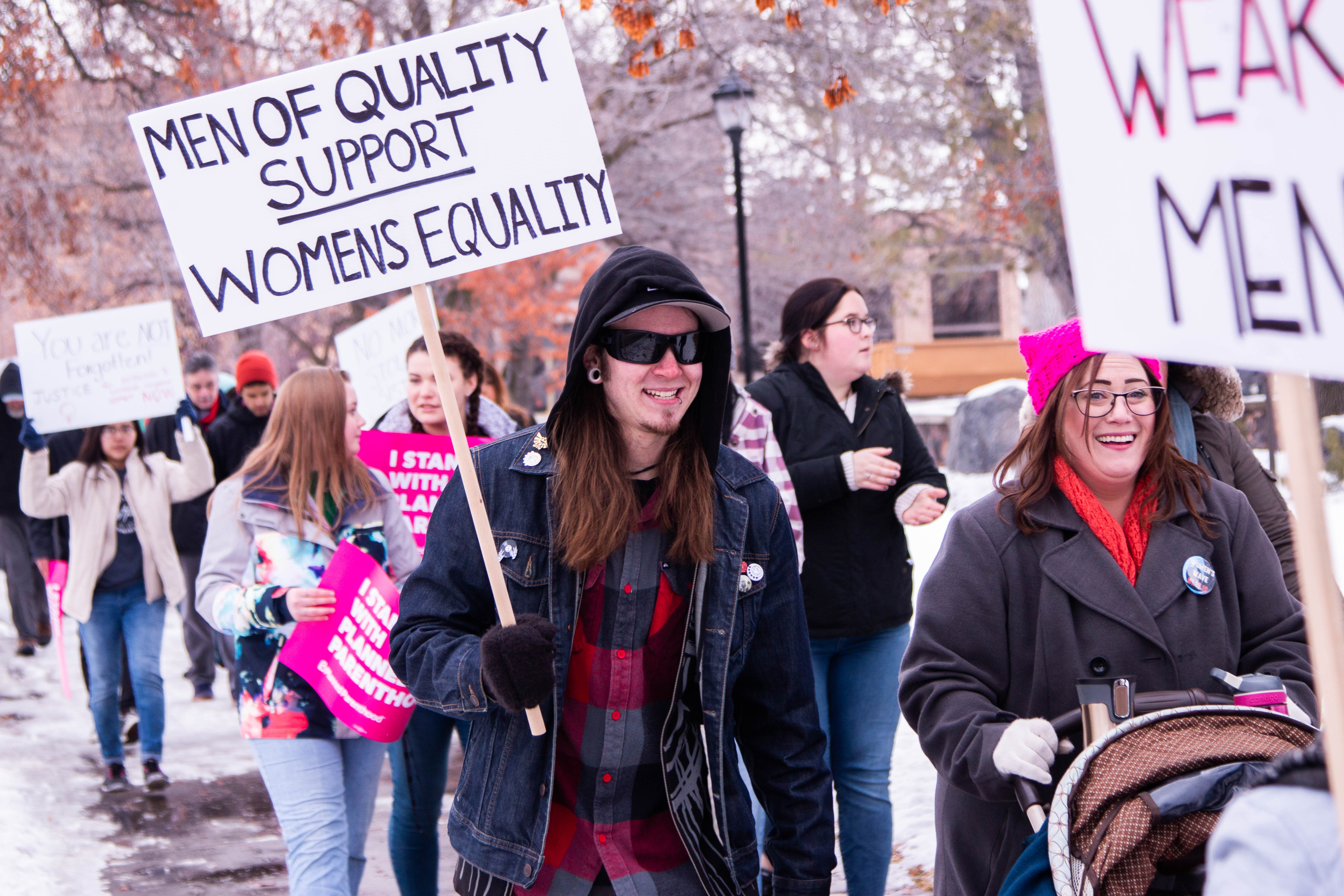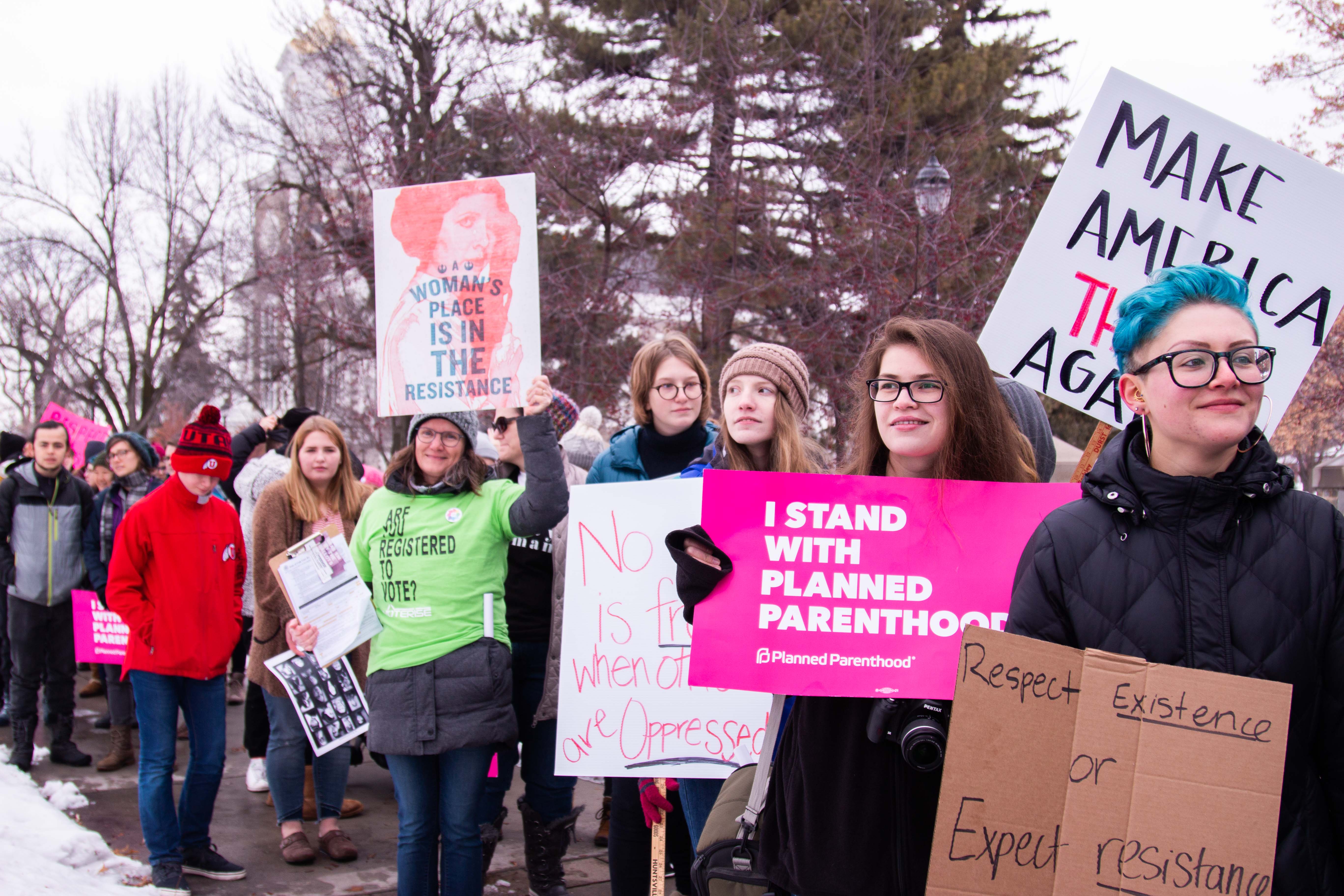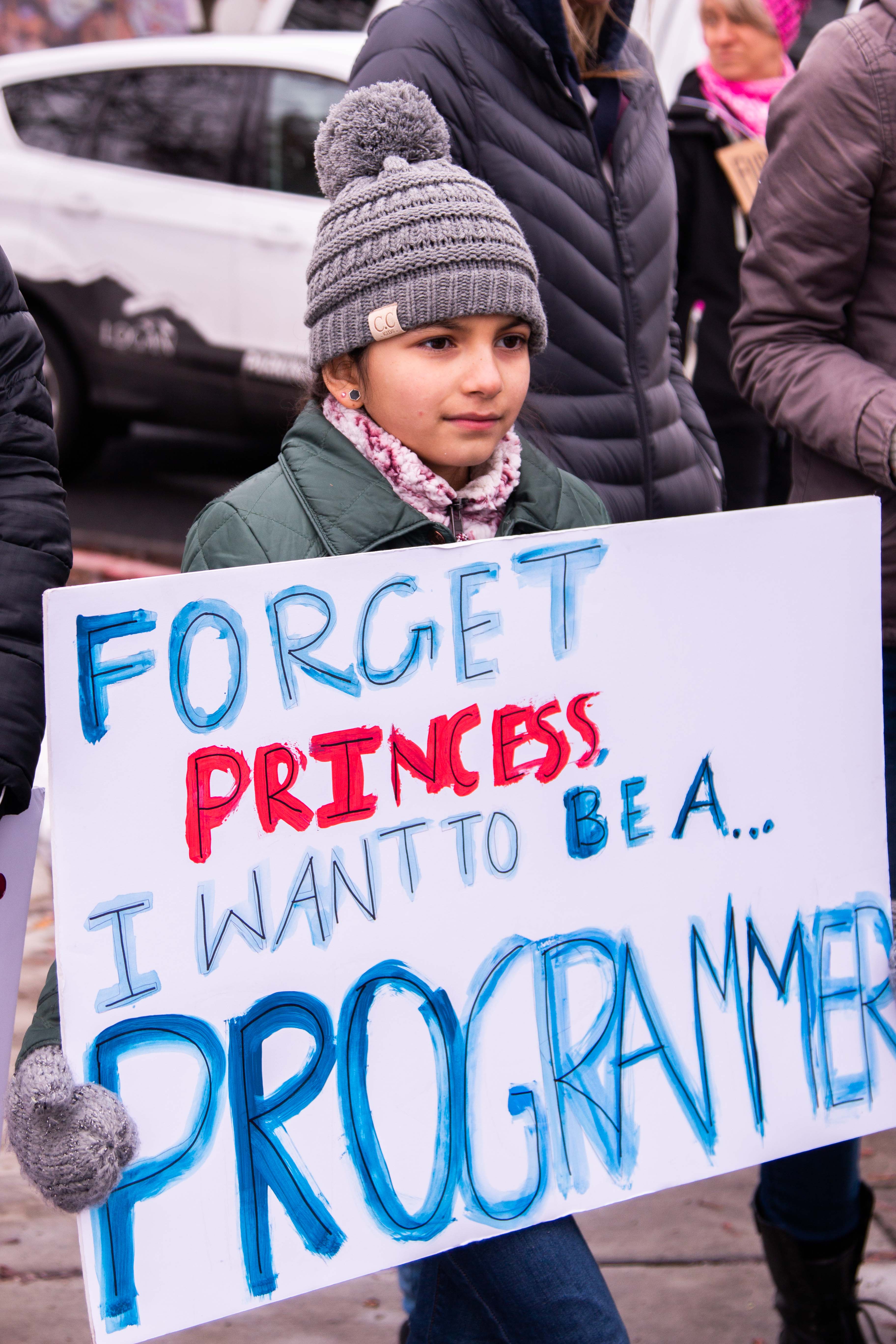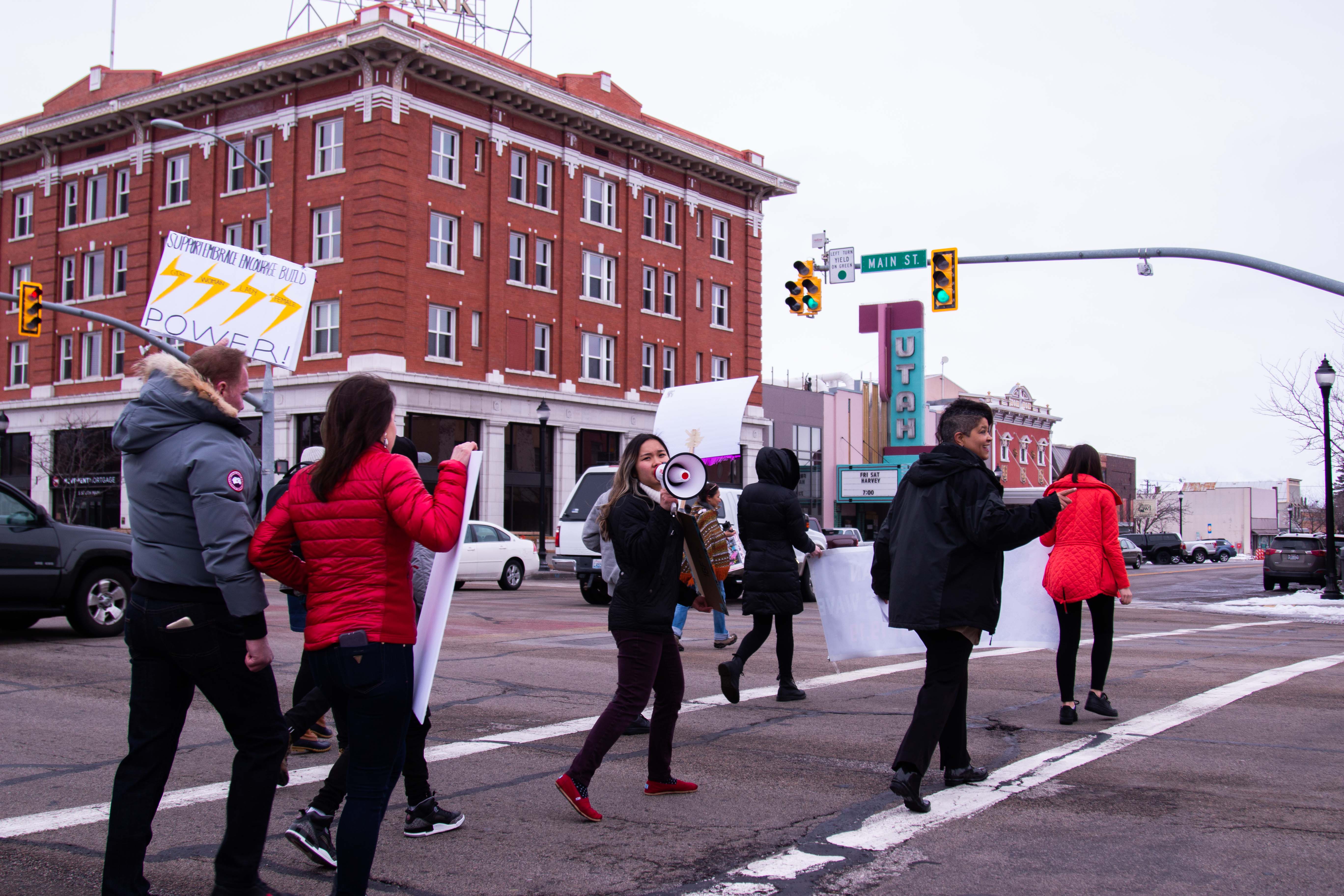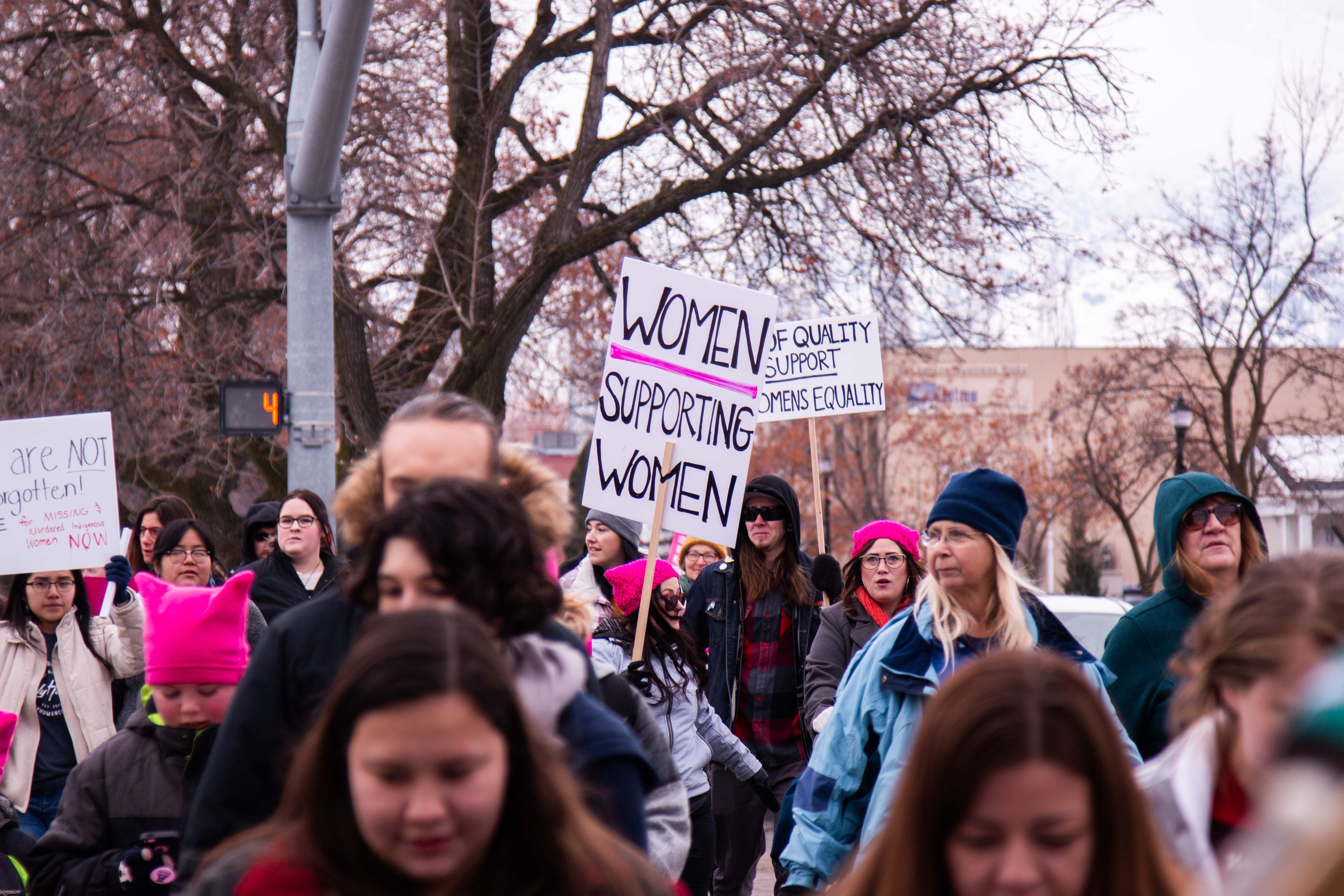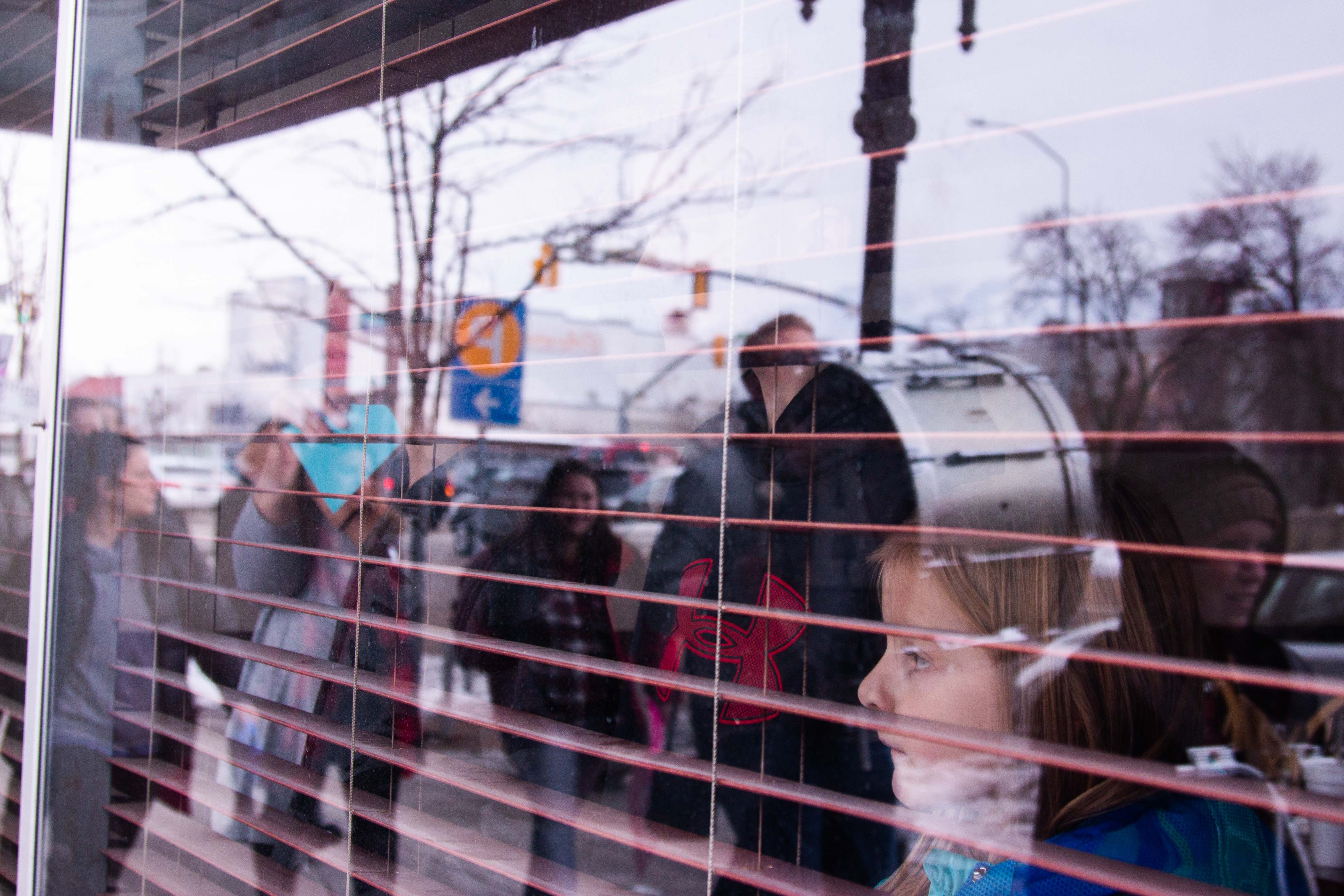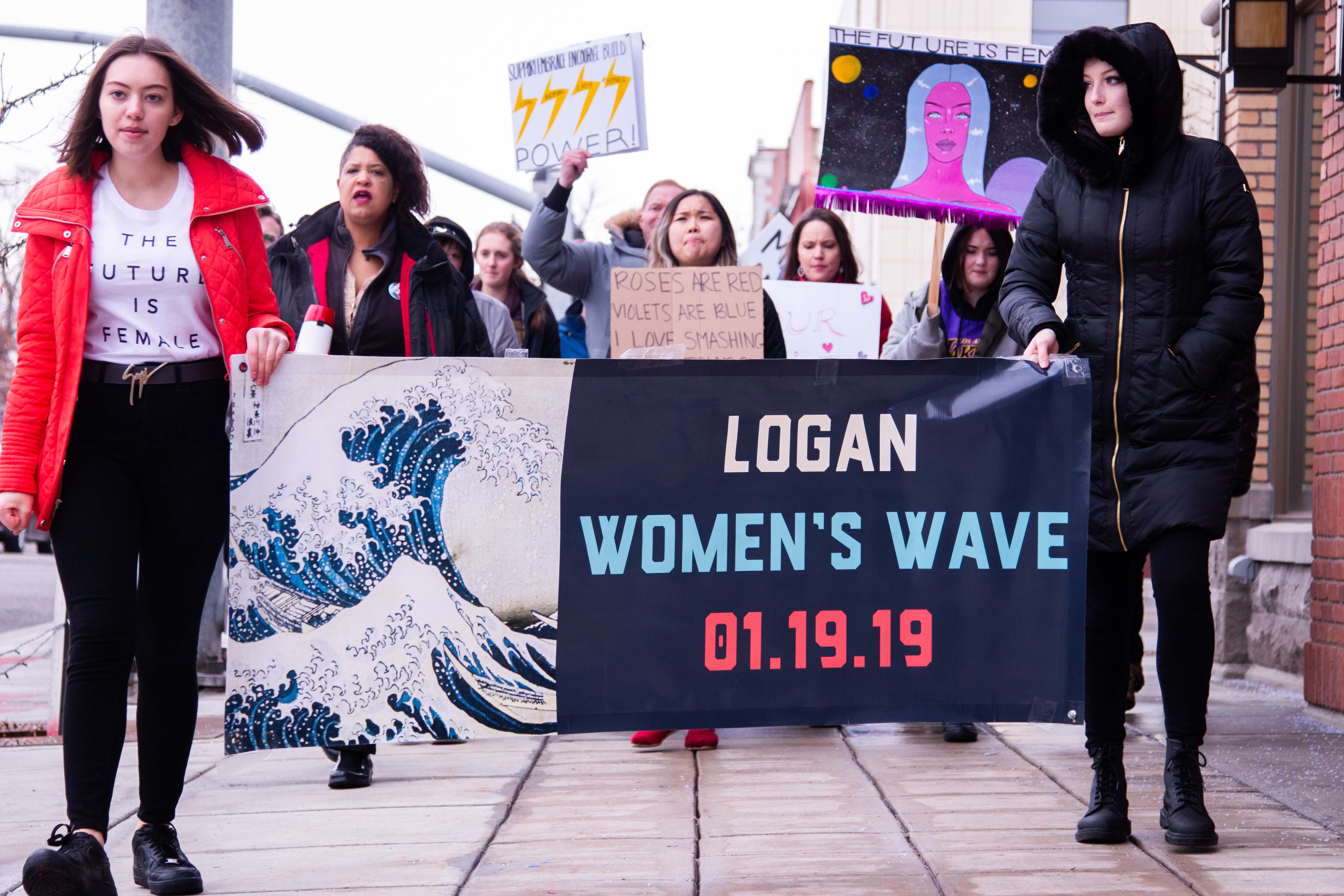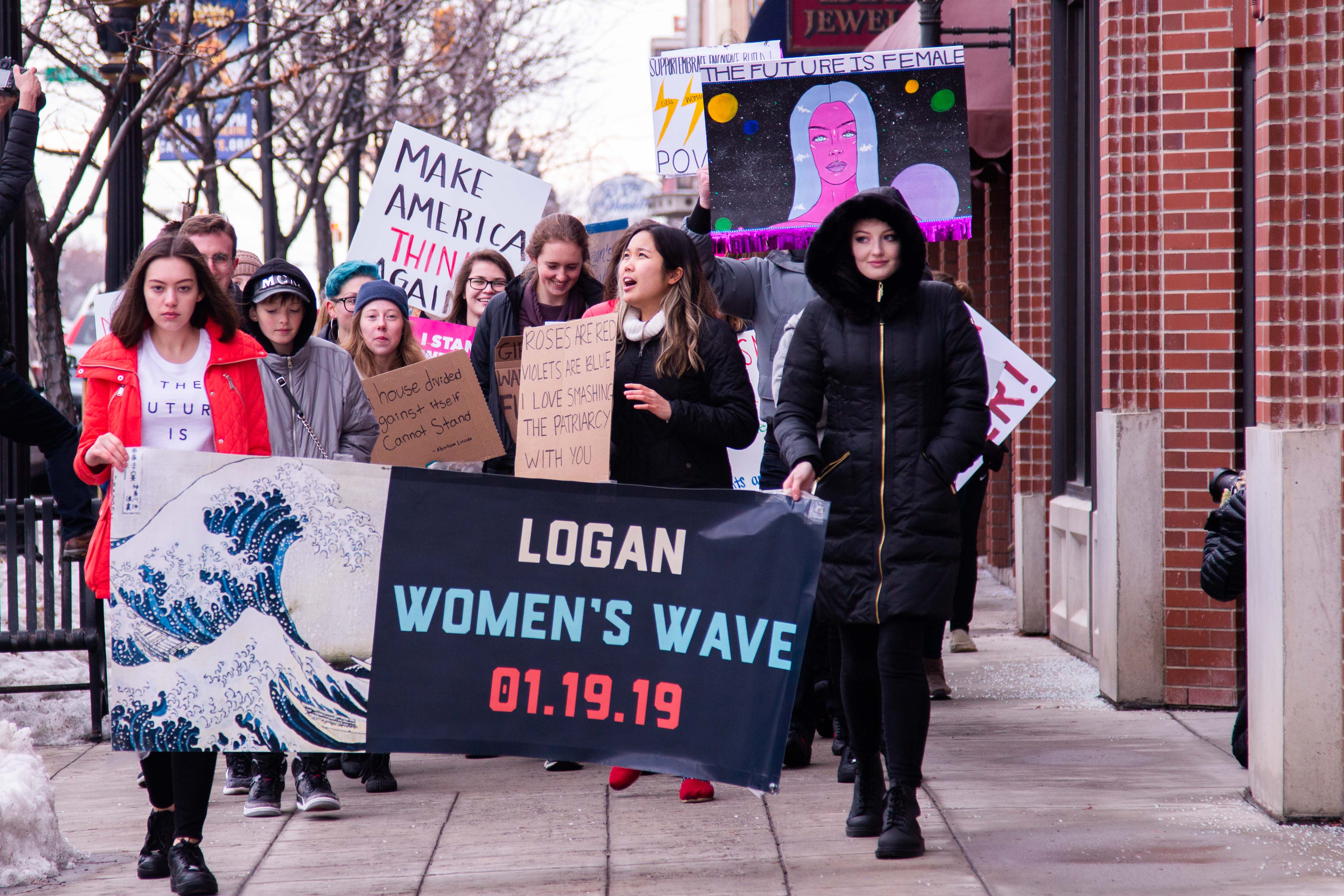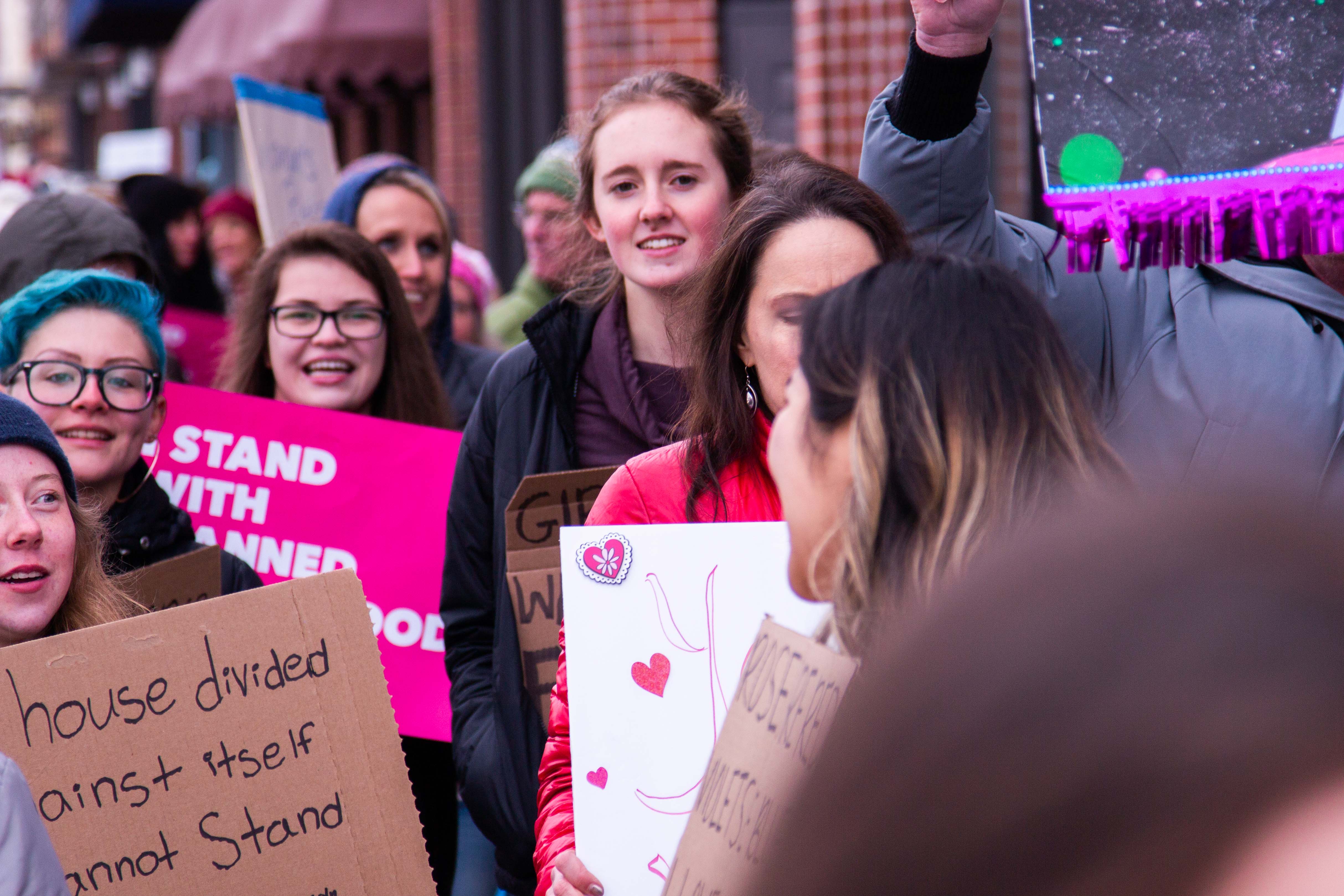Women’s Wave 2019: empowerment for every individual
“We will not wait until America is ready. We’re coming whether you like it or not.”
Those words come from Lex Scott, the founder of Black Lives Matter Utah, in her speech at The Logan Women’s Wave the morning of Saturday, Jan. 19.
People gathered in front of the Cache Valley Courthouse to hear speeches from eight different speakers, each of them representing different groups.
One of the organizers for the event, Desiree Chavez, said that making sure this year’s march took an intersectional approach was one of her goals.
“I think we need to recognize that the Women’s March, while it might seem like it’s presenting a voice for all women, we also need to recognize that it needs to be an intersectional effort. Fighting for all women really isn’t valid unless we keep it intersectional,” Chavez says.
Intersectionality is the idea that groups or individuals may identify with multiple social groups at once. Factors such as gender, race, sexual orientation, age, religion, and disability overlap with each other, creating complex identities among marginalized people.
With this in mind, organizers set out to find a diverse group of speakers to headline the event.
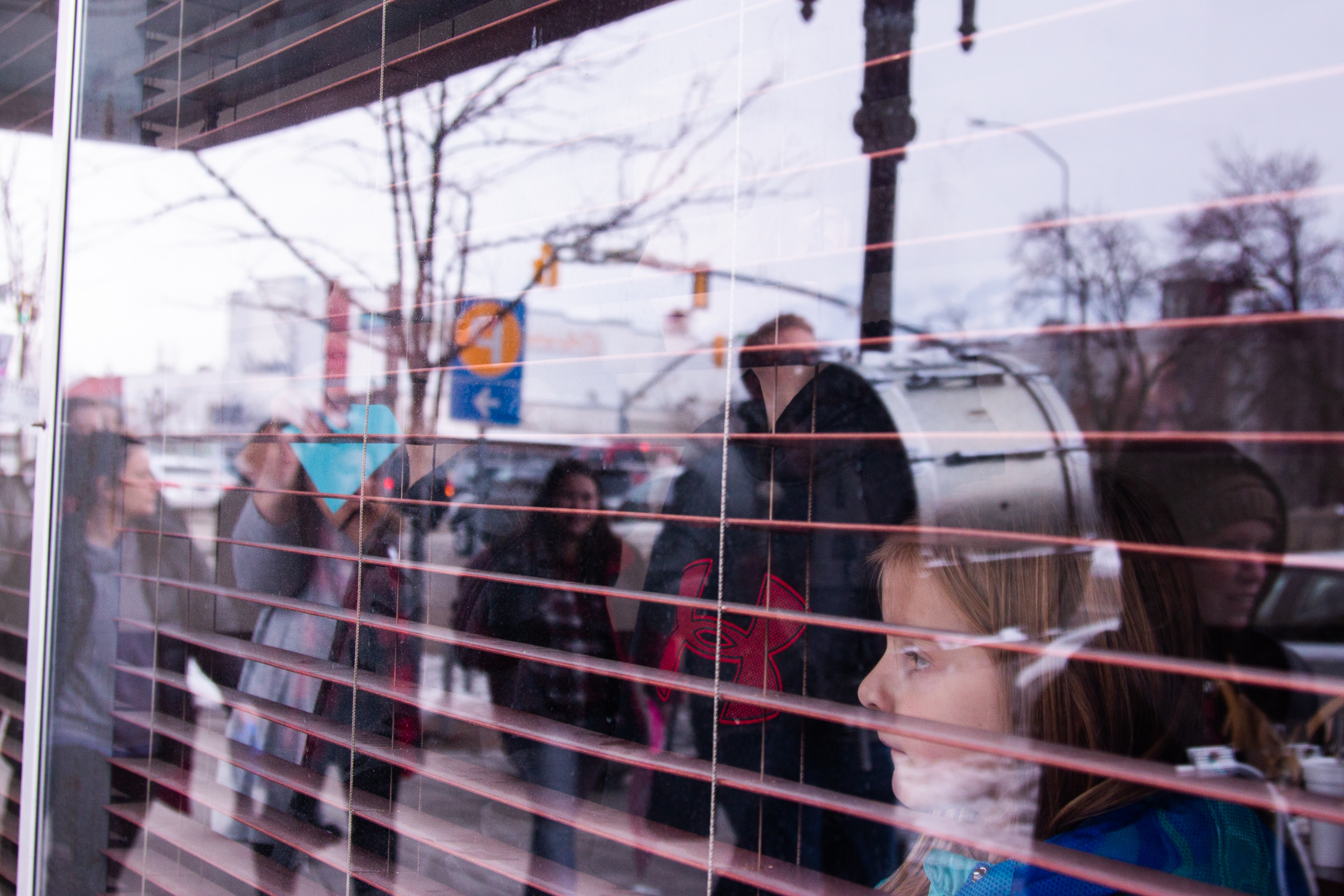
People march down Main Street as part of the Logan Women’s Wave on Jan. 19, 2019, in Logan, Utah. The event was the 2nd annual march in Logan and hosted the same day as its sister march in Washington D.C. (Megan Nielsen)
Marchers first heard from Lexie Gibbs, the president of Utah State University’s Students United for Reproductive Freedom group. Gibbs challenged marchers to remember, in the face of frustration about the state of the nation, all the positive things that have come out of the #MeToo Movement and Women’s Marches.
Gibbs was followed by Karina Andelin Brown, a former Utah House District 5 candidate and health care advocate, who reminded marchers that “you don’t need to win an election to make a difference.”
Next was Lila Sanchez, a caseworker and diversity coordinator at the Community Abuse Prevention Service Agency (CAPSA), who encouraged listeners to start by believing women.
Then came Kirsten Mara, a student at USU studying Sociology and Criminal Justice. Mara is a nonbinary person, which means they identify as neither a man nor a woman. Mara stressed the importance of including trans women and nonbinary people in discussions about feminism.
Mara also took a moment toward the end of their speech to honor Dana Martin, a black transgender woman from Alabama who was the first known victim of violence toward transgender people in 2019.
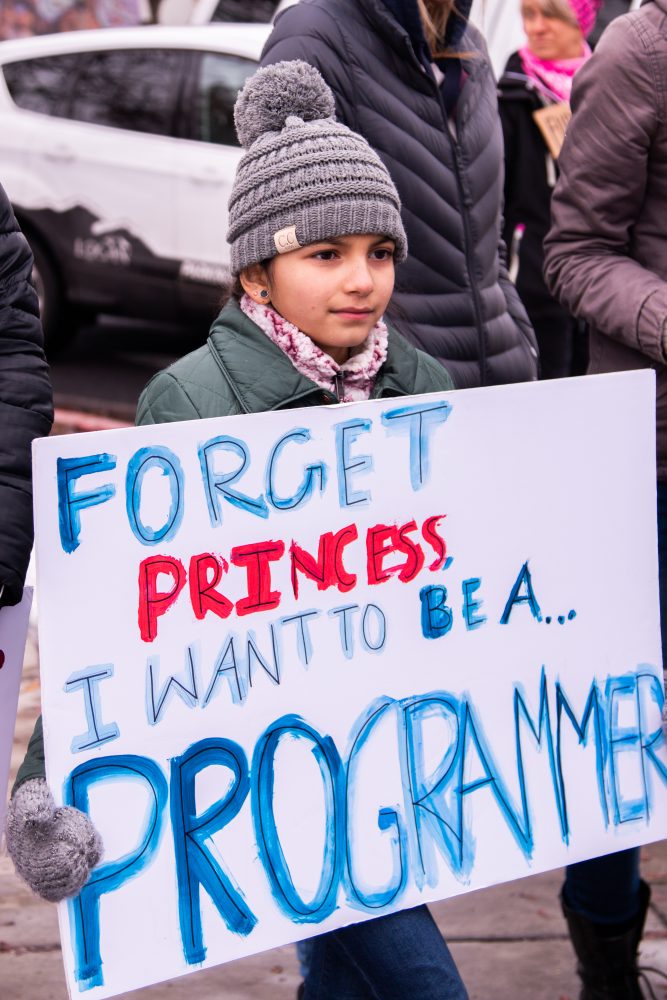 Megan Nielsen
Megan Nielsen People march down Main Street as part of the Logan Women’s Wave on Jan. 19, 2019, in Logan, Utah. The event was the 2nd annual march in Logan and hosted the same day as its sister march in Washington D.C. (Megan Nielsen)
“Although she can no longer defend herself, advocates continue fighting to make sure Dana’s voice is not forgotten and that her memory lives on in people’s minds, so she is remembered as the woman that she was,” Mara said.
Mara also offered comfort to other trans people who may be struggling with coming out. “There will always be people willing to fight for you to live as your authentic self,” they said.
Storee Powell was there speaking as an advocate for disabled individuals. Powell encouraged marchers fighting for women’s rights to include disabled people when crafting policy about women’s rights.
“Please remember us when you are fighting for women’s rights, because our voices matter too,” Powell said.
Dr. Marisela Martinez-Cola, an assistant professor of Sociology at USU, told the stories of many women of color who have changed history.
“We are often told that we stand on the shoulders of giants, and that may be true,” she said. “I would rather believe that we stand with the giants, within the giants, between the giants, among the giants. We are the giants and they are us.”
Martinez-Cola’s son passed out posters of pictures of 20 women who have changed history. Most of these women, she says, are often not discussed in history classes. “Never forget that history is about whose story gets told,” she said.
Devon Isaacs, a second-year Combined Clinical/Counseling Program doctoral student at USU and member of the Cherokee Nation, spoke on missing or murdered Indigenous woman, also known as MMIW. She shared stories gathered from friends, family and colleagues about MMIW in their own lives.
“I ask you to speak up and speak loudly. Lend a voice to the voiceless,” she said.
The final speaker was Lex Scott, the founder of Black Lives Matter Utah. Scott told the stories of both herself and her mother during their own times at Utah State University, where they both attended school.
Though they both experienced tragedy and a loss of innocence during their time at school, Scott said she hopes the world is changing enough to where she will no longer have to worry about her daughter when she sends her off to university one day.
In addition, Scott touched on the importance of acknowledging the stories of everyone in attendance. Intersectionality is important when it comes to inclusivity in a movement, and Scott reminded us that in diversity there is power.
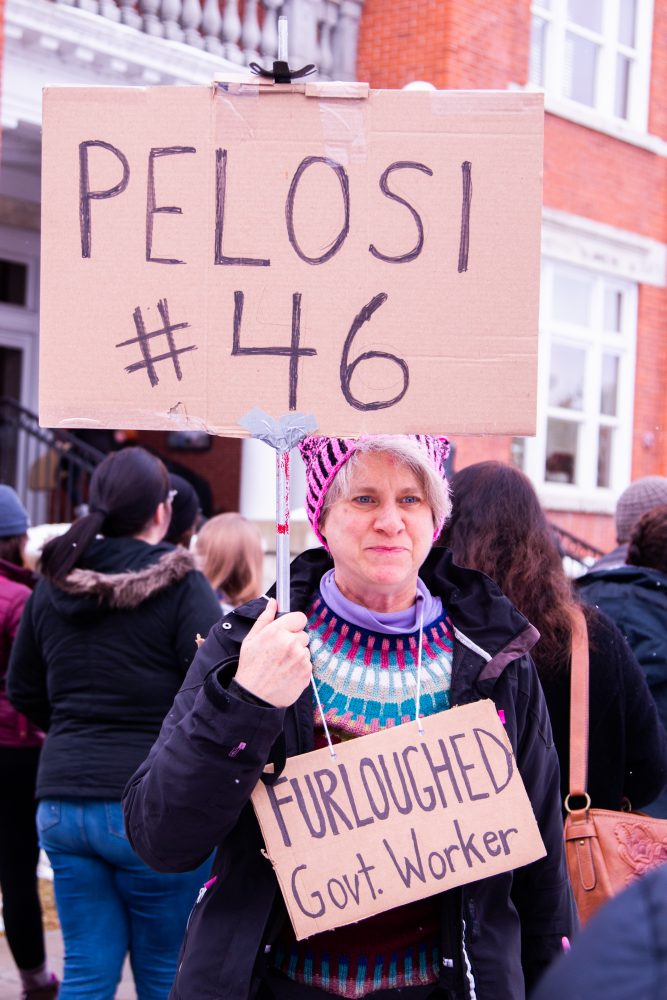
Dawn Holzer holds up a sign at the Logan Women’s Wave on Jan. 19, 2019, in Logan, Utah. The event was the 2nd annual march in Logan and hosted the same day as its sister march in Washington D.C. and featured speakers talking on a range of topics including gender, racial, and transgender equality. (Megan Nielsen)
“We all have similar stories here,” she said. “We are taught from a young age how to fit the mold…we are taught what a stereotypical woman should be and we are taught to not stray from that mold. In 2019, we have destroyed that mold. There is no mold. We will be a woman how we want to be women.”
Anny Chung, a participant at Saturday’s march, said she came to listen to the speakers and was impressed with how inclusive the march was.
“They were very passionate, and I loved the intersectionality and diversity of experiences and perspectives. They did a good job with that this year,” Chung said.
Following the speakers, marchers, lead by Scott, proceeded to march around downtown Logan, waving at individuals passing by in cars, looking through windows or walking down the sidewalks.
Despite the snow and slush, Logan citizens still felt it was important to come out and attend the march.
Attendee Jean Stewart summed up the feelings of many marchers: “I am marching because every voice counts.”
@allisonallreddd

